

Renee Hendrick Associate Superintendent, Orange County Dept. of Education
CLAS Officers



Renee Hendrick Associate Superintendent, Orange County Dept. of Education
CLAS Officers
President Dr. Autumm Jeter Bessemer City Schools
President-Elect Dr. Susan Patterson Cullman City Schools
Past President Dr. Tamala Maddox Robert F. Bumpus Middle School
Alabama Association of Secondary School Principals (AASSP)
Van Phillips. Center Point High School
Wes Rogers Elmore County High School
David Sikes Pike Road High School
Dr. Roderick Sheppard Florence High School
Bennie Shellhouse Andalusia High School
Bobby Tittle Ohatchee High School
Joe Toomey Murphy High School
Alabama Association of Elementary School Administrators (AAESA)
Tricia Culpepper Cullman City Primary School
Frances Finney ......................... Grantswood Community School
Charles Gardner Hokes Bluff Elementary School
Waller Martin Enterprise Early Education Center
Christopher Mitten ........................ Windham Elementary School
Matt Scott Creekside Primary Schoo
Dr. Dilhani Uswatte Rocky Ridge Elementary School
Alabama Association of Middle School Principals (AAMSP)
Cassandra Anderson Straughn Middle School
Dr. Larry Haynes Oak Mountain Middle School
Oliver Sinclair .................................. Spanish Fort Middle School
Keith York Opelika Middle School
Alabama Council of Administrators of Special Education (ALA-CASE)
Tara Bachus Limestone County Schools
Dr. Annie Spike Marshall County Schools
Lana Tew Morgan County Schools
Alabama Child Nutrition Directors (ACND)
Melinda Bonner Hoover City Schools
Alabama Leaders Advocating for English Learners (ALA-EL)
Stefanie Underwood Decatur City Schools
Alabama Association for Supervision and Curriculum Development (AASCD)
Dr. Lisa Beckham Mountain Brook City Schools
Ashley Catrett Crenshaw County Schools
Dr. Patrick Chappell. ............................ Homewood City Schools
Dr. Carlos Nelson Sheffield City Schools
Dr. Jan Tribble Limestone County Schools
Donald Turner, Jr. ................................ Calhoun County Schools
Alabama Association for Prevention, Attendance and Support Services (AAPASS)
Scott Faulk Dothan City Schools
Bobby Jackson Retired
Michelle Mitchell Albertville City Schools
Alabama Association of Career/ Technical Administrators (ACTA)
Chris McCullar Walker County Center of Technology
Dr. Rhinnie Scott Greene County Career Center
School Superintendents of Alabama (SSA)
John Heard, III. Perry County Schools
Dr. Charles Ledbetter, Jr.. Pike Road City Schools
Dr. Aaron Milner Saraland City Schools
Dr. Susan Patterson Cullman City Schools
Ted Watson ............................................. Andalusia City Schools
Alabama Association of School Personnel Administrators (AASPA)
Jim Miller ............................................... Shelby County Schools
Michelle Washington Lee County Schools
Dr. Brenda Rickett AASCD President
Dr. Michael Wilson AAESA President
Ken Sealy .......................................................... ACTA President
Scott Faulk AAPASS President
Dr. Brian Clayton AASSP President
Dr. David T. Asbury .......................................... AASPA President
Dr. Matt Akin SSA President
Andy Carpenter AAMSP President
Dr. Richard Templeton ............................... ALA-CASE President
Heather McDermott ACND President
Heath Grimes ALA-EL President

The
Publisher:
Editor: Alyssa L. Godfrey, CLAS Director of Communications and Technology
Contributors:


Hello in there,
I hope you all are making the best of this surreal world in which we find ourselves. No one needs to call my elementary teachers to find out that I had trouble sitting still, and everyone one of them would know that I still have a problem sitting still. However, one thing I did and do have is a clear understanding of the rules, procedures, and policies governing my surroundings. To that end, it was rare when my inability to sit still resulted in the teacher having to exercise any consequence that would require calling my parents. Likewise, today I am trying to model the behavior necessary to ‘flatten the curve’ of this coronavirus. In both cases I was and am capable of exercising self-control whether I like it or not.
We are in unprecedented times and your leadership is essential for helping your community move forward. I have heard about and seen examples of excellent leadership from across Alabama for those under your care, and this is very comforting to everyone. School is happening, learning is taking place, and engagement is occurring, and you are a huge reason for that.
CLAS is working hard to continue the professional learning opportunities for you as well. We have continued our Lunch and Learns and Leadership Institutes as well as hosted bonus special education
and EL webinars. We are also offering the 2020 Convention vitually. If you have questions or concerns in this area, please contact Dr. Sanders for help. Every person at CLAS has worked hard to ensure that your professional learning needs are met during these unprecedented times. I want to commend Tammy, Debbie, Anita, Alyssa, Starr, Demica, Leslie, Evelyn, Katrina, and Rickey for their hard work and commitment to our members. Thank you all!
We have been watching the legislation coming out of Montgomery and Washington. The stimulus bills that have been passed so far have been for immediate needs; however, the bills have not addressed the issue of connectivity for our learners. We are working to ensure that future bills include funding to help in this important area.
From a state perspective, the legislature returned on May 4, 2020 and worked until May 9, 2020 to pass the general and educational budgets and some local bills. The education budget was different than the one presented in March; however, we are pleased with the addition of money for literacy, English Learners, summer learning and nurses. The budget does not include raises, and that is certainly understandable given the economy. For the first time in years, the budgets passed both houses without a conference committee, and that is a

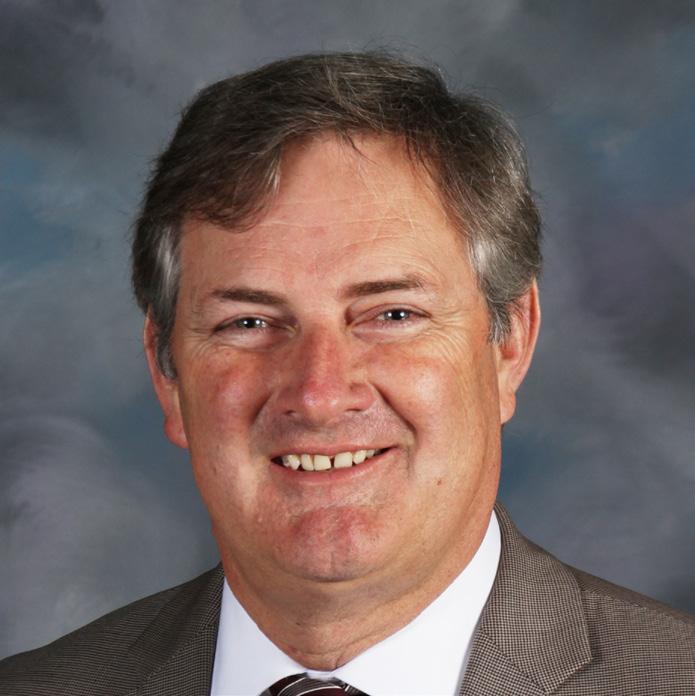
Vic Wilson is the Executive Director of the Council for Leaders in Alabama Schools. He joined the CLAS staff in July of 2017.
Vic has 27 years in public education as a teacher, assistant principal, principal, superintendent, and now as the executive director of CLAS.
Vic is married to Felecia Dailey Wilson, and they are the parents of Dailey (23), Emma (19), and Paul (16).
Aside from spending time with his family, Vic loves reading, sports, and the arts.
testament to the leadership in the House and Senate.
Even during times like these, life moves forward, and that is the case for all of us. We are having school in new ways; we are conducting business online and curb-side pickup; and we are socially interacting from a distance. It is my belief that education will emerge from this coronavirus shutdown stronger and better. During this time, CLAS stands ready to help you as you lead in your school, community, and state. Please don’t hesitate to let me know how we can be of assistance.
Sincerely,


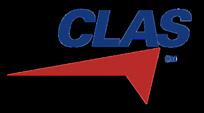






The Alabama Ethics Act governs public employees and public officials. The difference between the two is significant.
A public employee is anyone employed by a state, county, or municipal level of government, including governmental corporations and authorities.1 On the other hand, a public official is not only someone elected to public office, but also “any person appointed to a position at the state, county, or municipal level of government or their instrumentalities, including governmental

Public officials and public employees cannot use their office for personal gain, either for themselves or a family member.3 The Ethics Act presumes a governmental official or employee has a conflict of interest when a public official and public employee has more than 5% interest in a business with which the government does business.4 Likewise, no public official or public employee may solicit or receive anything for himself/herself or for a family member.
The Alabama Ethics Act also prohibits giving a gift to a family member of a public official or public employee. Note both the giver and the recipient could violate the law.5 In the last issue of CLAS

As a member of CLAS, you are a leader in public education. Alabama law does not clearly state whether your position is as a public employee or as a public official, unless you are the superintendent. Conceivably, even a principal could be considered a public official.

Whether you are a public employee or a public official is significant, because of the impact that has on your family members.
Family members of a public employee or a public official differ, under the Alabama Ethics Act. If you


Mark Boardman is an attorney who represents governments and employees of state and local governments, including 123 boards of education. In addition, he also defends individuals before the Alabama Ethics Commission.
Boardman has served as a past president of the Alabama Council of School Board Attorneys. He also served two years as president of the Alabama Association of Municipal Attorneys.
Boardman is a frequent presenter for CLAS as well as other education entities.
are a public employee, your family is defined only as your spouse or a dependent.6 On the other hand, if you are a public official, your family is legally defined much broader. The family members of a public official include:


Your spouse

Your child, whether a dependent or an adult

Your child’s spouse

Your parents

Your spouse’s parents
Your sibling or his or her spouse7
As a member of CLAS, you are obviously a school leader and probably someone who supervises. You may have been hired by the Board, upon a recommendation from the superintendent, just like all other employees of Boards of Education. If you are an appointed superintendent, you are clearly a person meeting the definition of “public official” in Alabama Code §36-25-1(27) as a “person appointed to a position at a state, county, or municipal level of government.” Each Board of Education is considered by the Alabama Supreme Court to be a local agency of the State of Alabama.
What about an assistant superintendent, a principal, or a CSFO? All of those positions are appointed by the Board of Education, upon recommendation of the superintendent. In each of those positions, the assistant superintendent, principal, or CSFO exercises governmental authority. The Ethics Commission has not issued an opinion for educators more specifically defining who is “any person appointed to a position at the state, county, or municipal level of government.”8 But this is not a decision only for the Alabama Ethics Commission. Courts could also decide this. None has yet.
The public policy rationale behind the prohibitions upon family members is clear: without it, someone may attempt to curry favor or corruptly influence a public employee or public official by going through a family member
The goal of the Ethics Act is to ensure that government decisions and policy are made within the proper channels of governmental structure, that the operations of our government are independent and impartial, that there be public confidence in the integrity of our government, and that no public office shall be used for private gain.9 Nevertheless, the Alabama Ethics Act is not meant to punish those who work in public service nor unduly limit them. The Alabama Legislature wrote that it believes:
It is essential to the proper operation of government that those best qualified be encouraged to serve in government. Accordingly, legal safeguards against conflicts of interest shall be so designed as to not unnecessarily or unreasonably impede the service of those men and women who are elected or appointed to do so. An essential principle underlying the staffing of our government structure is that its public officials and public
on page 18















This is Alabama State Superintendent of Education, Dr. Eric Mackey, and this is my message to this year’s graduating class. Hello and congratulations to the graduating Class of 2020!
If you were looking for a senior year of high school unlike any other in the history of our state, well… mission accomplished. No graduating class can compare themselves to the Class of 2020.
Never before has there been such a disruption in the school year as what has been caused by the COVID-19 pandemic. Unfortunately, your senior class had to bear the brunt of an unprecedented shift in our nation’s way of living.
You lost spring breaks, proms and graduations, only to have them replaced with social distancing, quarantining, and virtual classrooms.
But sometimes in losing things, we find things.
We found that, in many ways, we are all connected. We found that material possessions and many of the things we have held so dear in life are not what matters most.
We found that our interdependence on one another is ultimately what makes us all Americans, and that together, we possess an uncanny ability to be innovative and resourceful in times of crisis.
Still – I know this is not the way you wanted your senior year of school to end. You have worked hard and you deserve all of the traditional celebrations and festivities that come with achieving this incredible educational milestone.

Dr. Eric G. Mackey currently serves as the Alabama State Superintendent of Education. Prior positions include executive director of the School Superintendents of Alabama, superintendent of Jacksonville City Schools, principal, and assistant principal.
Throughout his career, Dr. Mackey has been an advocate for increased rigor and advanced high school courses as well as challenging elementary and middle school classes.
He and his wife, Robin, have three boys, John (22), Brandon (19), and Christopher (14).
One thing our rapidly changing world is teaching us is that we must equip ourselves for an unanticipated world. But equipped with the knowledge you have learned in class, the life lessons taught through school, and a desire to make a difference, the Class of 2020 will make the world feel its impact through leadership and service.
Service is simply education in action. Whatever path you decide to take in life, let your objective be to serve your community. Imagine the impact you could make whether you are moving into the healthcare industry where you will be a beacon of heroism; the IT field where you will lead electronic communities in the future, keeping us connected; finance, where you will lead the nation through what is sure to be some of the most challenging economic times; or the essential field of education, in which the very core of our nation’s social structure and workforce depends on your expert training…
Continued on page 18








Earn PLU OR clock Hour credit
Attend 2 sessions for each PLU to receive credit for one Phase I activity.

Standard I: Planning for Continuous Improvement
PLUACLD651

Standard II: Teaching and Learning PLUACLD653, PLUACLD762

Standard VII: Management of the Learning Organization PLUACLD656, PLUACLD852 (ACTA), PLUACLD789 (AASPA), PLUACLD2483836 (AAPASS), PLUACLD790 (AASCD)
MONDAY, JUNE 15, 2020
9:00 am - 9:30 am Welcome
9:30 am - 10:30 am Relentless
Hamish Brewer
10:30 am - 11:00 am Break/Visit Virtual Exhibit Hall
11:00 am - 12:30 pm Discipline for Improvement Instead of Punishment
Andy Jacks
12:30 pm - 1:00 pm Lunch Break
1:00 pm - 2:00 pm Breakout Sessions
Addressing the Needs of Students with Mental Health Issues
Leslie Allen
Bonus Session
Hamish Brewer
2:00 pm - 2:15 pm Break/Visit Virtual Exhibit Hall
2:15 pm - 3:15 pm Breakout Sessions
Your Health Is Your Wealth
Jeri Haslem
A Journey Towards #CS4ALL
Oxford City Schools
3:30 pm - 4:15 pm Virtual Happy Hour
TUESDAY, JUNE 16, 2020
9:00 am - 9:30 am Welcome
9:30 am - 10:30 am Triumph of the Spirit
Regina Louise
10:30 am - 11:00 am Break/Visit Virtual Exhibit Hall
11:00 am - 12:30 pm Emotional Poverty in All Demographics: How to Reduce Anger, Anxiety, and Violence in the Classroom
Reuben Perez
12:30 pm - 1:00 pm Lunch Break
1:00 pm - 2:00 pm Breakout Sessions
The Ins and Outs of the Workplace
Harrassment Process
Alana Williams
Tools for Teaching and Engaging Learners
Ana Carol Behel
2:00 pm - 2:15 pm Break/Visit Virtual Exhibit Hall
2:15 pm - 3:15 pm Breakout Sessions
Mental Health Matters: Mental Health
First Aid
Rashawn Blassingame
Update on Employment Law and HR Practices
Mark Boardman
3:30 pm - 4:15 pm Virtual Happy Hour
WEDNESDAY, JUNE 17, 2020
9:00 am - 9:30 am Welcome
9:30 am - 10:30 am
10:30 am - 11:00 am
Innovate Inside the Box: Utilizing the Core of Innovative Teaching and Learning in an Emergency Remote Teaching Situation
George Couros
Break/Visit Virtual Exhibit Hall
11:00 am - 12:30 pm Viewing Challenging Behavior through the Lens of Autism
Sara O’Kelley
12:30 pm - 1:00 pm Lunch Break
1:00 pm - 2:00 pm
Breakout Sessions
Practical Trauma-Responsive Social and Emotional Learning Strategies for the Classroom
Gregory Benner
Aim for Excellence: Transforming to a Culture of Joy
Selma City Schools
2:00 pm - 2:15 pm Break/Visit Virtual Exhibit Hall
2:15 pm - 3:15 pm Breakout Sessions
ACAP Reporting: DRC INSIGHT ™ Interactive Reporting Platform
Patrick Deshler
Punitive by Nature, Therapeutic by Design: The Evolution of the Genesis Alternative Education Center Talladega County Schools
3:30 pm - 4:15 pm Virtual Happy Hour
THURSDAY, JUNE 18, 2020
8:00 am - 8:30 am Welcome
8:30 am - 10:30 am Social and Emotional Well-Being at School: Arming Students with Coping Strategies
Kristen Berthiaume
10:30 am - 11:00 am Break/Visit Virtual Exhibit Hall
11:00 am - 12:30 pm Ignite Sessions
12:30 pm - 1:00 pm Lunch Break 1:00 pm - 2:00 pm Generational Management: Zap the Gap Generational Differences Reexamined Meagan Johnson
2:00 pm - 2:15 pm Break/Visit Virtual Exhibit Hall 2:15 pm - 3:15 pm Bonus Session Andy Jacks
Registration Required ($80)
Thursday, June 18, 2020 3:30 pm - 5:00 pm Stem the Tide of the COVID Slide! LIVE from Australia with John Hattie
Friday, June 19, 2020 9:30 am - 10:30 am
Teams Improving Practice: Getting Your Teams to Collaborative Impact Richard Erdmann & Christine Drew
Post-Convention sessions may also be used for PLU and Clock Hour Credit.










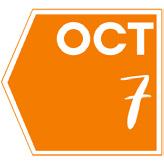

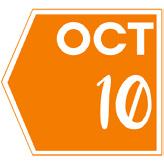

CLAS Convention 2020 At Home: Virtual Conference
SSA Summer Conference: Point Clear, AL
CLAS Lunch & Learn Webinar: Understanding the Brain to Understand Behavior
CLAS Leadership Institute
Empathy in Instruction: Strategies for Working with English Language Learners Huntsville, AL
CLAS Leadership Institute
Empathy in Instruction: Strategies for Working with English Language Learners Prattville, AL
CLAS Leadership Institute
Empathy in Instruction: Strategies for Working with English Language Learners Mobile, AL
CLAS New Principals Institute: Prattville, AL
ALA-CASE Fall Conference: Orange Beach, AL
CLAS Lunch & Learn Webinar: What Resources Are Available to Assist K-12 Math Teachers?
CLAS Leadership Institute
Mixed Messages: The Changing Face of Discipline Mobile, AL
CLAS Leadership Institute
Mixed Messages: The Changing Face of Discipline Prattville, AL
CLAS Leadership Institute
Mixed Messages: The Changing Face of Discipline Hoover, AL
ACGAL Conference: Tuscaloosa, AL
SSA Fall Conference: Florence, AL













AASPA Fall Drive-In Conference: Alabaster, AL
AASCD Curriculum & Instruction Bootcamp: Alabaster, AL
CLAS Leadership Institute
Supporting Students to Succeed with Text Dependent Writing Florence, AL
AASCD Curriculum & Instruction Bootcamp: Huntsville, AL
CLAS Leadership Institute Supporting Students to Succeed with Text Dependent Writing Prattville, AL
CLAS Leadership Institute Supporting Students to Succeed with Text Dependent Writing Daphne, AL
AASSP/AAMSP Fall Conference: Orange Beach, AL
AAESA Fall Conference: Mobile, AL
CLAS Secretaries Conference: Birmingham, AL
CLAS Lunch & Learn Webinar: Technology Strategies for Effective Stakeholder Engagement
CLAS Leadership Institute
Be Real: Educate from the Heart Mobile, AL
CLAS Leadership Institute
Be Real: Educate from the Heart Prattville, AL
CLAS Leadership Institute
Be Real: Educate from the Heart Huntsville, AL

CLAS Aspiring Administrators Conference
Location TBD

AASCD Winter Conference: Birmingham, AL

CLAS Assistant Principals Conference: Orange Beach, AL

AASPA Winter Conference: Montgomery, AL

SSA Legislative Conference: Montgomery, AL

CLAS Lunch & Learn Webinar: Lenses for Ethical Leadership

CLAS Culture Training Day 1 of 2:
Location TBD

CLAS Leadership Institute
Staying out of Legal Hot Water: Practical Tips for Avoiding Special Education Legal Disputes Mobile, AL

CLAS Leadership Institute
Staying out of Legal Hot Water: Practical Tips for Avoiding Special Education Legal Disputes Prattville, AL

CLAS Leadership Institute
Staying out of Legal Hot Water: Practical Tips for Avoiding Special Education Legal Disputes Hoover, AL

AASCD Curriculum & Instruction Bootcamp: Alabaster, AL

CLAS Assistant Principals Conference: Huntsville, AL

AASCD Curriculum & Instruction Bootcamp: Huntsville, AL

ALA-CASE Spring Conference: Birmingham, AL

CLAS Aspiring Administrators Conference Tuscaloosa, AL

CLAS Assistant Principals Conference: Prattville, AL

CLAS Lunch & Learn Webinar: Tried and True ELL Practices

CLAS Law Conference: Prattville, AL











CLAS Culture Training Day 2 of 2: Alabaster, AL
CLAS Leadership Institute
Help Me, Help You - The 3-Step Approach to Problem-Solving with Kids that Every Teacher Needs to Know (and Use)!
Daphne, AL
CLAS Leadership Institute
Help Me, Help You - The 3-Step Approach to Problem-Solving with Kids that Every Teacher Needs to Know (and Use)!
Prattville, AL
CLAS Leadership Institute
Help Me, Help You - The 3-Step Approach to Problem-Solving with Kids that Every Teacher Needs to Know (and Use)!
Huntsville, AL
CLAS Lunch & Learn Webinar: Using Data to Inform Decisions
CLAS Leadership Institute
Social Fatigue Mobile, AL
CLAS Leadership Institute Social Fatigue
Prattville, AL
CLAS Leadership Institute Social Fatigue Hoover, AL
CLAS Lunch & Learn Webinar: Updates from the SDE
CLAS Convention 2021: Birmingham, AL
SSA Summer Conference 2021: Point Clear, AL

I am certain that no Alabama school leader ever imagined something like the COVID-19 national emergency and its impact on the education of all public school students across the nation. The order to close Alabama schools in March and then later to provide virtual programming to all students in their homes with no in-person contact has been devastating for everyone involved. As a result, public education in a new “totally virtual world” seems to many to be an impossible feat, especially when students with disabilities must also be offered an appropriate education in a virtual format.
Obviously, most schools, students and parents were not prepared for this extraordinary predicament. Clearly, educators have been concerned about all of the special education legal procedural requirements contained in IDEA—from expired timelines and overdue IEP meetings to evaluation and reevaluation timelines and everything in between. Although these concerns are legitimate ones, it has been my thought from the beginning of this predicament that school leaders should be most concerned about getting services in place for their students as quickly as is possible and be less concerned with procedures
that were written into a law that did not contemplate a national emergency of such proportions. Because services were to begin virtually for non-disabled students in Alabama no later than April 6, 2020, antidiscrimination laws required the same be provided to students with disabilities. The Office for Civil Rights was clear about this in March, when it issued guidance that reflected that continued FAPE to students with disabilities was to be provided “to the greatest extent possible.” Even with this somewhat qualified language, providing appropriate services to students with disabilities during the school closure has been a herculean task for schools, particularly to those students with severe disabilities and those in need of therapies or other traditionally in-person services.
At the outset of the school closings, I quickly realized that there was absolutely nothing in the IDEA or the Alabama Administrative Code that addressed this kind of situation. As a result, I knew that there were no clear answers to any of the questions that school districts were asking me. While there was a possibility that the U.S. Department of Education might provide schools with additional guidance regarding technical


Julie J. Weatherly, Esq. is the owner of Resolutions in Special Education, Inc. with offices and attorneys in Alabama and Florida. Julie is a member of the State Bars of Alabama and Georgia, and for over 30 years, has provided legal representation and consultative services to school districts and other agencies in the area of educating students with disabilities.
She has been a member of the faculty for many national and state legal institutes and is a frequent speaker at special education law conferences. Julie is the author of the legal update for the National CASE quarterly newsletter and is a member of LRP’s Special Education Attorneys Advisory Council.
IDEA compliance issues and questions, I knew that schools could not wait for such guidance in order to have services in place by April 6, 2020.
In light of this dilemma and in light of a clear national emergency, it became clear that legal compliance with procedural requirements under the IDEA would have to be bent. In doing so, I reminded schools to remember what the U.S. Supreme Court said in 2017 about the overall legal standard for providing FAPE to students with disabilities—that the legal assessment of whether a program made available to a student with a disability is appropriate will require a determination of whether it was “reasonably calculated to enable the child to make progress in light of the child’s circumstances.
Although the Supreme Court did not decide its case in a time of an existing pandemic, it seems to me that due process hearing officers and courts will use the decision to examine challenges to services provided during the COVID-19 school closures “in light of the child’s circumstances.” These circumstances involve the mandate for virtual education in the home that was forced by a national health and safety emergency. School districts did not cause the school closures.
Although the virus and resulting school closures were not the fault of school districts, schools must still be able to demonstrate that they made good faith, reasonable efforts to ensure that programs offered to their students with disabilities were appropriate “in light of the circumstances.” As a result, school leaders must be prepared, in my view, to demonstrate that school staff provided services that would assist each child to make progress by developing an organized, individualized and documented plan of services targeted to address prioritized goals and critical skills for each student. In addition, schools must be prepared to show that the plan was developed in a way that afforded parents a meaningful opportunity to participate in decision-making, where feasible, and that reasonable efforts were made to contact and work with parents in a creative and collaborative fashion.
Lastly, schools should be able to show that reasonable efforts “in light of the circumstances” were made to establish regular communication with parents regarding the student’s progress during the school closure period. If schools can successfully demonstrate that
Continued on page 30
This article is sponsored by the Alabama Council of Administrators of

employees should not be denied the opportunity, available to all other citizens, to acquire and retain private economic and other interests, except where conflicts of interest with the responsibility of the public officials and public employees to the public cannot be avoided.10
Alabama law does not answer all questions. The uncertainty here affects members of CLAS.
Whether you are a public employee or a public official, your spouse and any dependent is covered by the Alabama Ethics Act. But if you are a public official, your spouse’s child, your parents, your spouse’s parents and your siblings and their spouses are covered by the Ethics Act.
1 Alabama Code section 36-25-1(26). Employees of government hospitals or other healthcare corporations are excluded. Likewise, a person who is employed on a part-time basis, whose employment is limited to professional services other than lobbying, resulting in compensation less than 50% of the part-time employee’s income, are not public employees.
2 Alabama Code section 36-25-1(27)
3 Alabama Code section 36-25-5
4 Alabama Code section 36-25-5(f)
5 Alabama Code section 36-25-7
6 Alabama Code section 36-25-1(14)
7 Alabama Code section 36-25-1(15)
8Alabama Code section 36-25-1(27)
9 Alabama Code section 36-25-2(a)
10 Alabama Code section 36-25-2(b)

Whatever role you play, make an impact. Whatever field of work you aspire to join, do so with a commitment to service. The future of our state, country, and world literally depends on you.
The word “commencement” means to begin or start.
PLUACLD691 is a total online PLU.
Member Non-Member $315 $525
o u s e t e c h n o l o g y t o
i n c r e a s e e f f i c i e n c y a n d p r o d u c t i v i t y a s
w e l l a s m o d e l t h e c o r r e c t u s e o f
i n s t r u c t i o n a l t e c h n o l o g y I n t h i s o n l i n e
P L U , p a r t i c i p a n ts w i l l l e a r n t h e " w h y "
a n d " h o w " t o i m p l e m e n t e f f e c t i v e
t e c h n o l o g y u s e i n s c h o o l s .
E X P L O R E T H E S E T E C H T O O L S :
E D P U Z Z L E
B L O G G I N G
G O O G L E F O R M S &
S H E E T S
S C R E E N C A S T I N G
R E M I N D
F L I P G R I D
T O D A Y ' S M E E T
T W I T T E R
V O X E R

You may have ended your senior year sooner than you expected; that just means you started the rest of your life early.
So, get out there! Make an impact. Show leadership and service. Show the world what you are made of! Congratulations again to the most incomparable class of graduates ever – the Class of 2020!



Discrete Safety Alerts
Emergency Notifications

Audio Enhancement’s SAFE (Signal Alert For Education) System™ provides peace-of-mind for today’s schools. Discrete, wireless alerts can be sent from anywhere in the school from teacher microphones. Pre-recorded emergency notifications help students and staff stay calm and organized in urgent situations. Improve your school’s peace-of-mind with SAFE System.
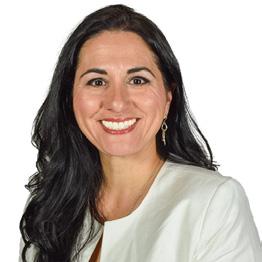

I hope this issue of the CLAS School Leader finds you well. We have been dealing with uncertainty for the past few months now, and unfortunately, we will probably continue to deal with uncertainty. It is my hope that your leadership has been a constant for those under your care during these uncertain times. Your leadership is critical as many will be looking to you for guidance as we navigate the coming days, weeks, and months. As always, we at CLAS are here to help you in any way we can.
After a lengthy break in the legislative session, the Alabama State Legislature reconvened on May 4, 2020, and over the course of the next six days passed several local bills, the General Fund budget, and the Educational Trust Fund budget. All bills and the budgets were then sent to the governor for her signature.
The ETF Budget passed the House very quickly by a 75-1 tally. The only no vote was Representative Sorrell from House District 3 which covers parts of Colbert, Lauderdale, and Lawrence County.
The House also passed the supplemental bill for education and the Rolling Reserve ETF Advancement and Technology Fund. Both are good news for school systems. Every single bill dealing with education passed on a 75-1 vote with the lone dissenting vote being Rep. Sorrell from District 3.
The final education-related bill for this package was the bond issue. This bill passed the House as well, and as it has already passed the Senate is ready to go to the governor for her signature.
Likewise, the Senate passed the ETF Budget very quickly. This was the first time in several years that the ETF budget was passed by both houses without having to go to conference committee. Both groups worked together on this budget, and that is a testament to the leadership working hard to get everyone on the same page.
When the legislative session began back in February, everyone agreed that the ETF budget would include raises and increases for several areas. Early iterations of the budget furthered this thought as a 3% raise for all education employees was included. Additionally, the Tier III legislation passed the house 105-0 and was beginning the movement in the senate. Alas, the coronavirus changed most of that.
The new budget did not include a raise. Also, Tier III was not taken up by the Senate as both houses agreed to work on local bills and the budgets. However, the new budget did include increases for some very important areas. Literacy, English Learners, summer learning, and nurses are just a few of the areas that saw much-needed increases in the budget.


From a national perspective, Congress has passed several bills designed to help alleviate the problems caused by Covid. The CARES Act includes money for school systems to offset costs associated with the disease, and Dr. Mackey and the SDE have sent guidelines to superintendents on this funding. Additionally, as of the timing of this article, Congress was working on another funding bill designed to help alleviate problems arising from coronavirus.
As always, your work at home is critical to legislation in our state and nation. Contact is critical when it comes to your legislative agenda, and no one is better positioned to engage elected officials on school issues than educational leaders. Remember, craft your narrative or someone will
Vic has 27 years in public education as a teacher, assistant principal, principal, superintendent, and now as the executive director of CLAS.
Vic is married to Felecia Dailey Wilson, and they are the parents of Dailey (23), Emma (19), and Paul (16).
Aside from spending time with his family, Vic loves reading, sports, and the arts.


This commentary discusses a court case reported last fall out of the Seventh Circuit Court of Appeal, in which an assistant principal had a difference of opinion with her superintendent, and she ultimately lost her job. The case began in the 2014-15 school year. On October 18, 2019, the appellate court affirmed the lower court’s grant of summary judgment to the superintendent and school district, effectively ending the case. The citation for the case is Ulrey v. Reichhart, 941 F.3d 255 (7th Cir. 2019).
The assistant principal of a junior-senior high school in Indiana learned in August that her superintendent had granted permission for a student of adult age to possess, although not to smoke, cigarettes on school grounds. She objected to the superintendent’s decision. However, instead of raising her concerns directly with the superintendent, she called the president of the school board. The school board president then emailed the superintendent to raise questions about his decision. The superintendent soon met with the assistant principal, chastised her for going over his head, and pressured her to apologize, or he would issue her a formal reprimand. The assistant principal apologized.
In Indiana, principals and assistant principals must have an administrative license, and when under contract have procedural protections under the teacher tenure law. At the end of October, the superintendent sent out an email to all teachers and administrators to remind them to make certain their licenses were up to date. The assistant principal logged on to the state department’s website and noted that there was a problem related to faulty processing of license renewals from the university she had attended. She promptly informed her principal and superintendent. The superintendent called the state department later that day, in the presence of the assistant principal. A state department official told them the error could be easily resolved.

Dr. Dave Dagley serves as professor emeritus of educational leadership with the University of Alabama. Dagley holds the PhD degree from the University of Utah and the JD degree from Cumberland Law School. He has served as a teacher, principal, assistant superintendent, superintendent, and school board attorney. Dagley is a frequent presenter at CLAS events on various legal topics.
He has also been a long-time contributor to this publication.


Amy Dagley, PhD, is an assistant professor in educational leadership at the University of Alabama at Birmingham. She previously worked for the University of Louisiana at Monroe, and as a public educator in Alaska. She has earned bachelors and masters degrees from the University of Alaska Southeast, and a PhD from the University of Alabama.
Amy Dagley is the daughter of long-time columnist for this magazine, Dr. Dave Dagley.
The next morning, the state department official contacted the assistant principal and asked for her permission to remove false entries in her file, and she agreed. Two days later, the superintendent could not find the assistant principal’s corrected license online and emailed her and called a meeting. She met with the superintendent, the high school principal, and the business manager. In the meeting, the superintendent criticized the assistant principal, and implied that her licensing difficulties were not an honest mistake.
Another tense meeting occurred four days later, on November 4, with the same participants. The superintendent told the assistant principal that he could not get over the licensing situation. The assistant principal asked the superintendent if he was asking for her resignation. He replied that he was, and presented her with a prepared letter of resignation for her to sign. During the meeting, the assistant principal ended up signing the letter of resignation, and the school board accepted her resignation at a meeting that night. Subsequently, she claimed in a lawsuit that the superintendent forced her to resign as retaliation against her, for contacting the school board president. The assistant principal sued the superintendent for retaliating against her because she had exercised her Free Speech rights, and for violating her due process rights in forcing her to resign.
Until 2006, a web of Supreme Court cases guided the analysis for Free Speech retaliation claims in the government employment setting, particularly in school employment. In one case the trial courts were instructed to attempt to balance the rights of the employee against the rights of the governmental employer. Pickering v. Board of Education, 391 U.S. 563 (1968). Another case asked the trial court to consider whether the speech was made as an employee with a private complaint, or as a citizen, speaking on an issue of public concern. Givhan v. Western Line Consolidated School District, 439 U.S. 410 (1979). A third case requested the trial court to take into account the content, form, context, and balance of interests in deciding whether speech is an issue of public or private concern. Connick v. Myers, 461 U.S. 138 (1983). A fourth case directed the trial court to ascertain whether the government employee contract would have been properly terminated, independent of the retaliation for speech. Mt. Healthy City School District Board of Education v. Doyle, 429 U.S. 274 (1977). These carefully-crafted rules were for the most part set aside by Garcetti v. Ceballos, 547 U.S. 410 (2006). The Garcetti rule is, if a governmental employee’s speech is pursuant to the employee’s official job duties, the speech is not protected by the First Amendment. Under this strict rule, the appeals court set aside the assistant principal’s complaint that she had been retaliated against for going over the superintendent’s head, to call the school board president. Discussion of student discipline policy was part of her job.
The assistant principal’s second claim was that the superintendent and school board violated her due process right when the superintendent forced her to sign a pre-arranged letter of resignation, and when the board acted to accept it. If a school employee has a property interest
Continued on page 25


“If you always do what you've always done, you'll always get what you always got.”

Alyssa Godfrey
Alyssa Godfrey is a native of Montgomery, Alabama and has served as the CLAS Director of Communications and Technology since 2004. Her previous association experience was earned with the Alabama Cattlemen’s Association and Alabama PTA. She is a graduate of Auburn University Montgomery with a Bachelors in Business Administration with a focus on Management Information Systems.
Alyssa is married to Ryan Godfrey and they are the parents of Tristan (12) and Elodie Layne (5). She enjoys crafing, cooking, tech gadgets, and spending time with family.
When you wished your favorite people a “happy new year” on January 1, did you imagine what the year 2020 would shape up to be? Would you have guessed that you would be leading your team through one of the most extraordinary and challenging of times? I know, I didn’t see it coming.
When told that schools were closing for the rest of the school year, what did you do? You went to work – planning, Zooming, preparing – right? And I’ll bet a whole lot of people were looking to you for leadership during these unprecedented circumstances. That’s what leaders do. They lead.
We hear stories daily about the innovative and creative ways that educators are meeting the needs of their students, parents, and communities. From the meals you served to the Wi-Fi hotspots on buses
parked around town to the take-home packets and using 3-D printers to make PPE; educators are truly heroes. I want you to know that CLAS and its affiliates and partners are unbelievably appreciative of your efforts.
As you know, CLAS is the association created by administrators for school administrators to support our state’s school leaders. I wasn’t even born when CLAS was founded, but I’m certain the founding members would never believe all that has happened this year and the changes CLAS has made to adapt to our new normal.
As Governor Ivey issued the first order that closed schools, CLAS began searching for ways to help. In response, we offered a series of webinars on delivering special education services during the

in continued employment, for example by contract, the employer cannot terminate employment without due process of law. State law in Indiana—as in Alabama—dictates the procedures which must be followed to terminate a school employment contract. If the superintendent had attempted to terminate the assistant principal’s contract, he would have been required to follow statutory procedures. The trial court had granted the school district’s request for summary judgment on the due process claim, because the assistant principal had resigned. At the appeals stage, the assistant principal attempted to overturn the grant of summary judgment, by arguing that there was a disputed fact, on whether she had freely agreed to resign.
The general rule is that a resignation is voluntary and valid, unless one of two exceptions can be shown. The first exception is constructive discharge. Constructive discharge occurs when the employer makes the working conditions and work environment so difficult for the employee, so egregious, so exceedingly hostile, that the employee resigns to seek some relief. In this case, the assistant principal did not produce sufficient evidence of bad conduct on the part of the superintendent over a period of time to create such a hostile work environment.
The second exception which would make a resignation involuntary is when the resignation is coerced. For a resignation to be considered coerced is quite rare, often involving threats beyond termination, such as physical harm or criminal prosecution. Examples of coerced resignation cited by the appeals court in this case included threats of physical harm to the employee; threats to harm an employee’s family, threats of loss of vested pension benefits if the employee did not resign and were instead fired; threats of criminal prosecution; and, using misinformation to raise the level of threat. Ulrey v. Reichhart, 941 F.3d at 263. The superintendent admitted that he told the assistant principal that it would be in her best interest to resign. The most that could be inferred from that
statement was that he was suggesting that resigning would be better than an eventual termination over the licensing issues.
Constructive discharge and coerced resignations are related in that they both feature bad conduct on the part of the employer. They differ in that for the former, the bad conduct occurs over a long period of time; for the latter, the bad conduct comes in a crush at the end. The assistant principal failed to bring evidence of such bad conduct by the superintendent, so the appeals court affirmed the trial court’s grant of summary judgment on the due process claim.
The assistant principal probably made two mistakes in the sequence of events. The first one was to call the board president, rather than talking privately, perhaps face-to-face, with her superintendent. The second one was to succumb to perceived pressure to resign. Rather, she should have asked for time to consider the superintendent’s request, then privately sought counsel on her next step from a colleague, from her representatives at CLAS, or from her attorney.
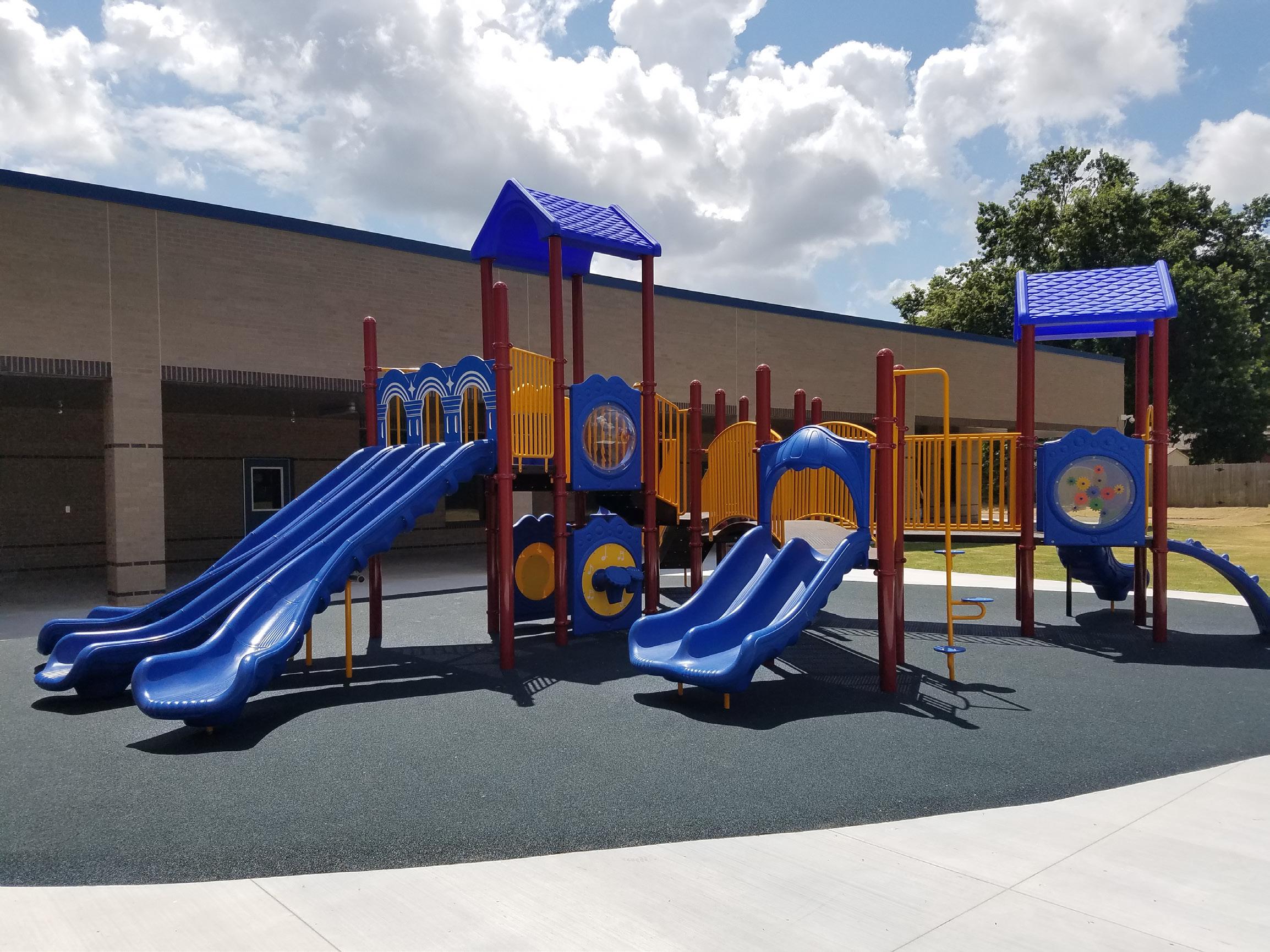

The world has forever changed because of coronavirus. Before a couple of months ago, all of us had never heard of this disease and never would have thought of the changes that would come with it. Since March 18, 2020, the CLAS office has been working remotely from home, just like many of you! We now face things such as shelter in place, virtual meetings, school closures and trying to stay calm in a world of chaos. Since we have been working from home, I have had a lot of time to read various blogs and articles. The blog below appeared in my inbox at a time where I needed some guidance and hope that it helps you during this difficult time.

Prior to her appointment as CLAS Director of Professional Learning, Demica Sanders was the superintendent in Midfield City Schools. In addition, her educational career encompassed a variety of roles including special education coordinator, adjunct instructor, staff development trainer and classroom teacher.
Demica is married to Tim Sanders and they are the parents of Jaylon (17) and Kameron (14). She enjoys spending time with her family, traveling, and shopping.
Over the last few weeks, as the COVID-19 crisis has moved across the world with increasing speed and upended life (and business), we’ve been reminded of the importance of leaders at all levels stepping up to the plate. To help leaders fully engage people and strengthen their resilience in uncertain times, we revisited what leaders do when they are at their personal best. We identified six common strategies you should incorporate into your leadership practices to be successful in facing adversity. B r o a d e n t
View what’s happening from a historical perspective. Doing so provides an understanding of how others have dealt with challenging times. Research shows that people who first reflect on their past during stressful circumstances and tell positive stories about handling hardships are more effective in dealing with adversity. They also rebound more
People want to know the truth—even if it’s bad news. If you want your team to respond with fierce determination during periods of adversity, you need to increase your level of communication about what is really going on. Exemplary leaders acknowledge reality, but do not dwell on the threat. See change as a challenge and move quickly to mobilize resources to defy the verdict.
To gain alignment between people and values during tough times, exemplary leaders make certain everyone understands the purpose that guides decisions.
Natraj Iyer, Product Manager at eBay, reminds us “to seize the moment and be the leaders we can be. Each and every one of us has a choice to be that leader.” As a leader, you have to respond assertively to moments of trial and adversity.
Collaboration and trust among your team are essential for building the capacity needed to get through difficulties. Neuroscientists are discovering that our brains are wired to connect. People engaged with one another are motivated to strengthen their
relationships with each other, resolve interpersonal conflicts, and find win-win solutions.
Jane Binger, who has been responsible for leadership development and education for years at Lucile Packard Children’s Hospital, Stanford University, says of her colleagues, “They want to know that I value them. That I think they are doing a great job. That I am not taking them or their contributions for granted. This doesn’t require any grand, over-the-top actions.” Showing you care is personal. But, if you want people to hang in there when times are tough and continue to give it their all, let them know—regularly—that they are valued.
Adapting these six leadership rules will enable you and your organization to take the initiative and move forward in navigating these extraordinary times. Remember that you can do this and you’re not alone.


What if all teachers on a faculty had the confidence to overcome barriers and collectively believed that all students can gain more than a year’s growth over the course of one year? As leaders, we should all agree that this would be a powerful belief. But, just how powerful is this collective belief? Hattie (2017) refers to this belief as “collective teacher efficacy” and suggests that this area has the greatest potential to considerably accelerate student learning. In his Visible Learning research, collective teacher efficacy ranks above all other positive influences such as a student’s prior ability, teacher credibility, feedback, and response to intervention.
We would be remiss if we did not mention a pioneer in self-efficacy, Albert Bandura. He proposed a model that included four sources of information: performance accomplishments, vicarious experience, verbal persuasion, and physiological states (Bandura, 1977). These four sources of information have served as a foundation for numerous research studies related to how individuals evaluate their self-efficacy. The intent of this article is to examine the first source of information and discuss how school leaders could use it as a springboard to improve teacher self-efficacy. The source of information that will be discussed is performance accomplishments.
Bandura (1977) suggested that performance accomplishments were based on personal mastery experiences. Moreover, he noted that

Dr. Chris James, a native of Russellville, AL, currently serves as the Director of Teacher Education and Associate Professor of Instructional Leadership at the University of North Alabama. During his career in education, he has served as a secondary mathematics teacher, assistant principal, principal, and laboratory school director.

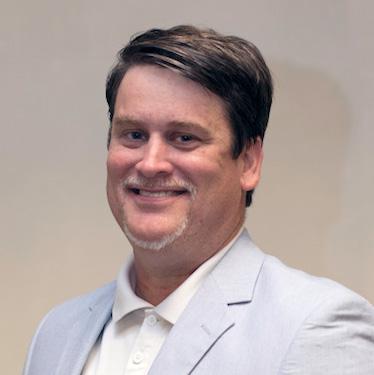
Dr. Jeff Cornelius is an Associate Professor of Instructional Leadership at the University of North Alabama. A native of Tuscumbia, AL, he received degrees from Mississippi State University, University of North Alabama, and Samford University. He also has served as a classroom teacher, assistant principal, principal, and assistant superintendent.
successes increased mastery expectations and repeated failures decreased mastery expectations. Does this imply that failures do not need to occur? No, the key word is “repeated” failures. To take it a step further, he noted that a course of treatments which included participant modeling with guided performance allowed participants to attain a generalizable skill for coping with stressful circumstances successfully. So, what is participant modeling? “Participant modeling provides additional opportunities for translating behavioral conceptions to appropriate actions and for making corrective refinements toward the perfection of skills” (Bandura, 1977, p. 196). The punch line here is additional opportunities and corrective refinements. Bandura (1977) suggested a learning environment where clients could be successful despite their incapacities. He also discussed providing a variety of aids in the beginning and gradually moving away from the aids until the aids can be eliminated. Does this sound familiar with teachers? The next section of the article will discuss an application of this logic.
As school leaders, how many times do we employ some new strategy and expect our teachers to execute the task? If we think about improving teacher self-efficacy, this may not be the best option. Teachers are dependent on their school leader to provide them with information to be successful, as well as remove barriers that may stand in the way. As a result, we must be proactive in what we are asking teachers to do if we want to improve self-efficacy. Therefore, we want to share some reflective questions that you may want to consider to enhance mastery expectations.
What is the performance task(s) that you want the teacher(s) to accomplish? Does the teacher understand the performance task(s)?
What structures are in place in order for the teacher(s) to be successful? Is content scaffolding needed? Is job-embedded professional development needed?
Have you considered participant modeling? If so, who will deliver it and how will it look? What will happen if the teacher(s) is not successful? Are corrective refinements in place?
jdcornelius@una.edu
Have you identified the supplementary aids that you will need in the beginning for the teacher(s) to be successful? If so, are they readily available?
Do you have a plan for successful implementation and how it will look?

these things occurred, it will be likely that any of the procedural violations during the school closure period were of no consequence and did not result in a denial of FAPE. In addition to being able to demonstrate that FAPE was provided during the school closure period, it also seems to me that all of these good faith, reasonable efforts will likely keep parents from seeking out advocates or attorneys for the purpose of filing legal challenges to what was done by the school during the school closure period.
“Fact Sheet: Addressing the Risk of COVID-19 in Schools While Protecting the Civil Rights of Students” (March 16, 2020). This document can be found at: https://www2.ed.gov/about/ offices/list/ocr/docs/ocr-coronavirus-fact-sheet.pdf
Endrew F. v. Douglas Co. Sch. Dist. RE-1, 137 S. Ct. 988 (2017).

Have you considered having teacher(s) reflect on their level of efficacy before the task and after completion of the task?
This article provides school leaders with reflective questions to consider in building teacher selfefficacy. In summary, it is our hope that you realize the impact that teacher self-efficacy may have on student learning and consider strategies that you may employ to enhance teacher self-efficacy. If we can improve the levels of individual teacher selfefficacy on our faculties, their beliefs collectively should assist in removing barriers previously standing in the way of significant student growth.
Bandura, A. (1977). Self-efficacy: Toward a unifying theory of behavioral change. Psychological Review. https://doi. org/10.1037/0033-295X.84.2.191
Hattie, J. (2017, November). 250+ Influences on student achievement. Visible Learning. Retrieved April 1, 2020, from https://visiblelearning.org/wp-content/uploads/2018/03/VLPLUS-252Influences-Hattie-ranking-DEC-2017.pdf








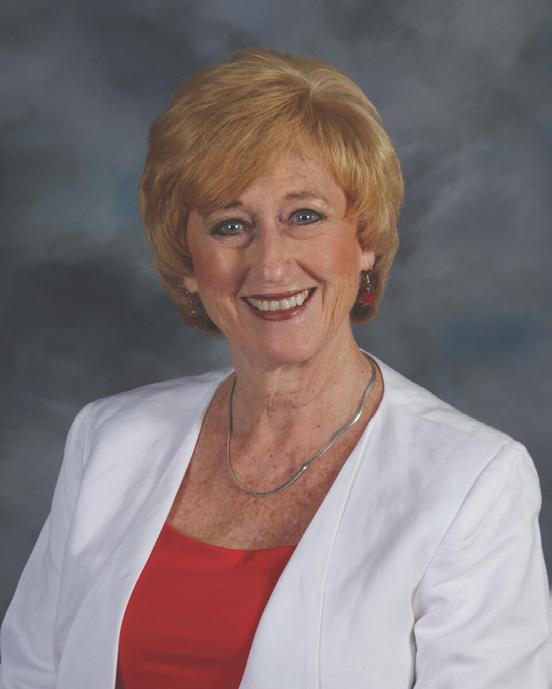
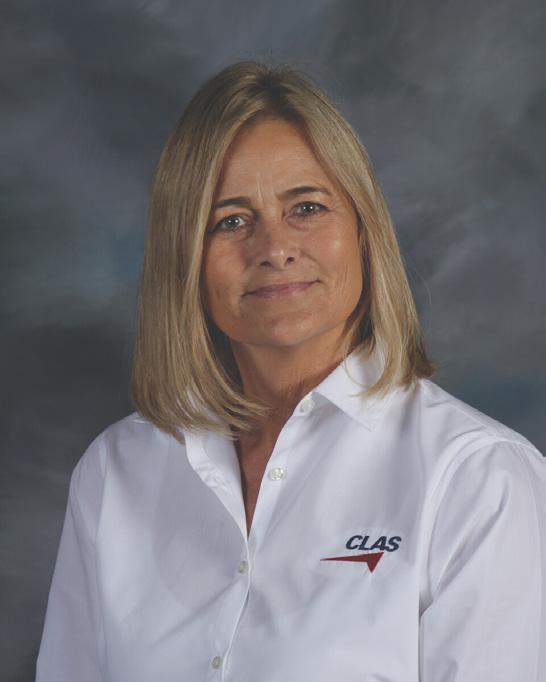
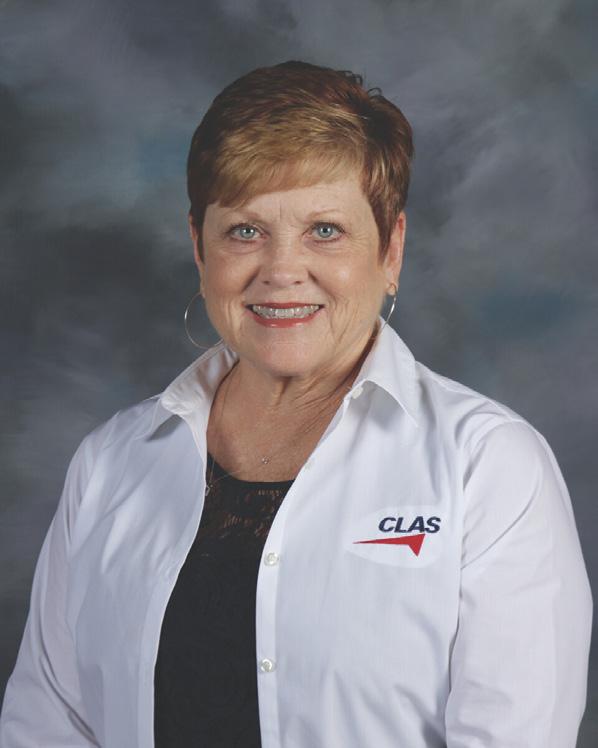

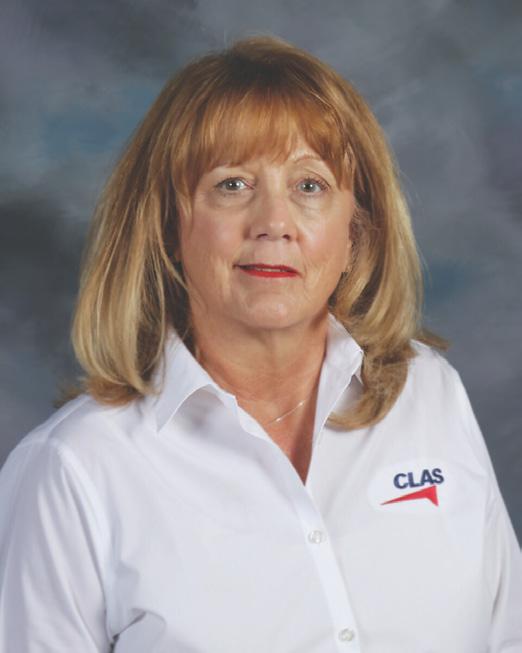
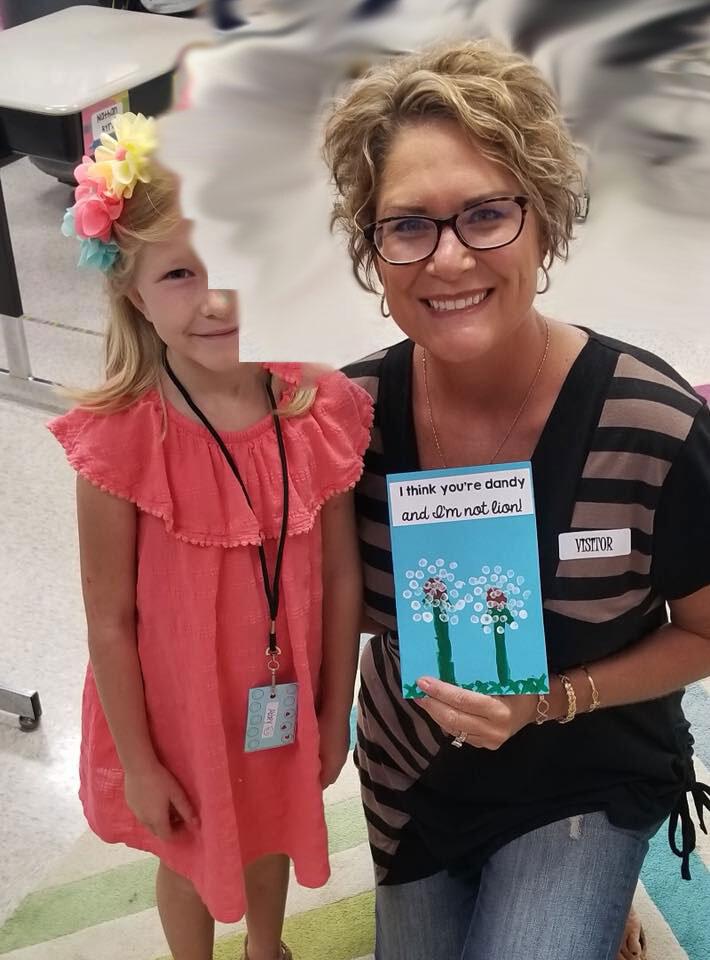
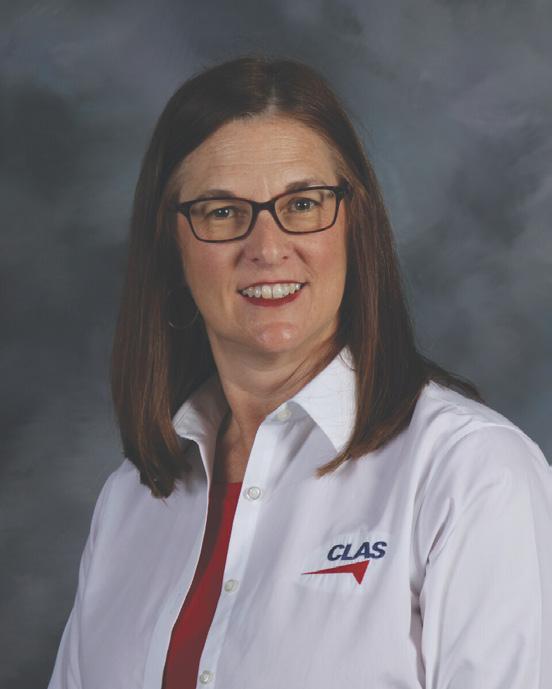




Amplify Childhood Literacy! Dramatic results with this evidence-based, supplemental curriculum





Remember the Interactive Playground? It’s back in June!


New! STEM Career Pathways Curriculum K-12 Progression Develops Students for High-Value Tech Jobs.

ALBOE District Rep, Dr. Cynthia McCarty, stated, “This and I am so proud of Albertville City Schools the collaboration with [PowerUpEDU] to bring this for March 23, 2020 The Reporter

l to r: Miranda Battles, AP Evans ES; Dr. Boyd English, ACS Superintendent; Robert Sims, Principal Evans ES; Maggie Phillips, PowerUpEDU; Dr. Cynthia McCarty, ALBOE District Rep

Albertville City Schools Superintendent, Dr. Boyd English stated, “ ..The ACS STEM Bus allows us to introduce students and the greater community to STEM education….Partnering with PowerUpEDU allowed us to complete our STEM Bus Project completely, in a quest to maximize the positive impact that STEM instruction has on tudents. PowerUpEDU is more than a simple partner…PowerUpEDU has become a valuable part of the Aggie Family!”



closure. We offered the webinars completely free to any educator who wished to attend. More than 1,000 of you participated as Attorney Julie Weatherly and the ALSDE’s Crystal Richardson delivered these presentations and answered numerous questions.
After the success of the special education webinar series, our affiliate the Alabama Leaders Advocating for English Learners (ALA-EL) asked if we could do something similar for EL educators. CLAS responded by offering a webinar with Heidi Goertzen from the Center for Applied Linguistics and Susan Beard from the ALSDE.
As a professional learning organization, we frequently feature webinars as part of our regular offerings; however, we primarily deliver face-toface content. In-person events are best suited for networking, which is one of the most valued aspects of a CLAS event. As you were forced to think outside the box, so were we.
As the state shut down gatherings, we realized that one of our notable annual events, the CLAS Banner School Awards Luncheon, would have to be postponed or cancelled. We were saddened by this turn of events as so many of your schools were nominated for this award, selected as Schools of Distinction, and deserved the hard-won recognition. Once again, CLAS was able to provide the Banner School Awards Ceremony by partnering with WOTM in Montevallo to broadcast the program on TV and live stream on their website. Being able to showcase the wonderful programs in Alabama schools in this non-traditional format allowed us to see potential, future enhancements for the Banner School program as well as other programs we offer.
In March, CLAS asked its members to tell us whether or not you still planned to attend our convention if we were able to hold the event. An overwhelming percentage indicated that you would still come. We were humbled by the response which demonstrated a hunger for our high-caliber content the CLAS Convention is known for.
As we began to get a clearer picture of what a CLAS Convention with social distancing might look like, the CLAS Executive Committee made the difficult decision to forego a traditional face-to-face event for a virtual convention instead. Visit our Convention website at convention.clasleaders.org for up-to-date information regarding this event.
As you’ve probably realized, we are operating under a new normal where things may never go back to the way they were before. You have adapted as leaders while we’ve adapted as an organization. Let’s always try to use change as an impetus rather than a hindrance as we move forward in our journey together.

Special Education
COVID-19 Considerations for Special Educators Special Education, 504, and More, Oh My English Learners
Supporting English Learners (ELs) Through COVID-19
View Online clasleaders.org/coronavirus

These exemplary schools were recognized in an Awards Ceremony broadcast on WOTM on May 4, 2020. From each State School Board district, one school was chosen as the CLAS Banner School. These schools will be featured throughout the year as outstanding educational models.
State School Board District 1
#Success
Foley High School
Baldwin County Schools
Culinary Arts: Visiting Chef Series
Gulf Shores High School
Gulf Shores City Schools
Robotics
Katherine Hankins Middle School
Mobile County Schools
Art Guild
Straughn High School
Covington County Schools
State School Board District 2
PowerUP!
Horseshoe Bend School
Tallapoosa County Schools
REELTIME
Reeltown Elementary School
Tallapoosa County Schools
State School Board District 3
Recycling in Drew (RID)
Charles R. Drew Middle School
Talladega County Schools
Jumpstart Summer Enrichment
Creek View Elementary School
Alabaster City Schools
RockStars
Lincoln Elementary School
Talladega County Schools
Tiny House – Big Dreams
Lincoln High School
Talladega County Schools
State School Board District 4
Kingdom Principles
Eastwood Middle School
Tuscaloosa City Schools
Teen and Police Services (T.A.P.S.)
STARS/Success Prep
Tuscaloosa City Schools
The Rams Way
Walker Elementary School
Tuscaloosa County Schools
Project Family
Westlawn Middle School
Tuscaloosa City Schools
State School Board District 5
Tiger Trending Marketing Media
Demopolis High School
Demopolis City Schools
Blast Off Monday
Francis Marion School
Perry County Schools
Summit Learning
Pike Road High School
Pike Road City Schools
STEM Makerspaces
Wilson Elementary School
Montgomery County Schools
State School Board District 6
Be Who You A.R.R.G.H.
Corley Elementary School
Boaz City Schools
Tribe Time
Good Hope High School
Cullman County Schools

Raiders Read! Reading, Relationships & Rigor
Pleasant Valley Elementary School
Calhoun County Schools
Attendance HERO
West Elementary School
Cullman City Schools
State School Board District 7
Lunch with the Keys
Florence High School
Florence City Schools
STEM and Fun Day
Howell Graves Preschool
Muscle Shoals City Schools
Math in Motion
Tuscaloosa Magnet Schools - Elementary Tuscaloosa City Schools
Service Starts Here!
Tuscaloosa Magnet Schools - Middle Tuscaloosa City Schools
State School Board District 8
Why Try Resilience
Glencoe Middle School
Etowah County Schools
World Language
Liberty Middle School
Madison City Schools
Building Bridges at the Creek for Our EL Students
Mill Creek Elementary School
Madison City Schools
Biomedical Science
New Century Technology High School
Huntsville City Schools

Educators quickly identify and reach their communities with SchoolCast. Each contact can decide how you communicate, based on an emergency or non-emergency situation. Voice and SMS text messages, and enhanced e-mail - as well social media connectionsall can be delivered at rapid speed.

Take advantage of multi-language communication tools, auto-attendance and lunch balance noti cations, parent dashboard, and non-emergency message "tagging" for sponsors and revenue generation.
Plus, with the SchoolCast for MeTM mobile app, schools and districts can provide a complete customized parent communication tool. Deliver grade books, videos, alerts and much more!



Principal: Mr. Russ Moore
#Success
Baldwin County Schools
Superintendent: Mr. Eddie Tyler
In the Fall of 2015, twenty- four freshmen were selected as part of Foley High School’s inaugural #Success program. These students were selected due to tremendous adverse childhood experiences (ACEs) that categorized them as being “highly at risk” of not graduating high school. Through the program, students were paired with a faculty mentor, a success coach, who coached them throughout their high school career. Students met with success coaches on alternating days to review grades, discipline, attendance, and most importantly, to discuss other issues the students were experiencing that could be barriers to academic success. Success coaches also built relationships with the students’ families and offered connections to family services in the community. As success coaches advocated for the students, they taught students to self-advocate appropriately with teachers regarding grades. Twenty #Success students graduated in May 2019 giving the program a 91.6% success rate of graduating high-risk students. After graduation, #Success students pursued postsecondary education, industry-training programs, military, and working with local businesses in the tourism and hospitality industry. Foley High School’s #Success program provided opportunities for the school’s most at-risk students to have intensive guidance and support from caring teachers which resulted in a higher graduation rate.
Principal: Mrs. Cindy Veazey
Superintendent: Dr. Matt Akin
The Visiting Chef Series at Gulf Shores High School was developed to create and improve community stakeholder relations while providing students the opportunity to learn from and work with world-class chefs in the local area. Bi-monthly during Focus hour, interested students attended demonstrations by visiting chefs, asked questions, and tasted the prepared dishes. During scheduled class time, chefs also taught students skills involved in preparing the demo dish or worked collaboratively with students to prepare another dish. Chefs shared experiences in competitive food, food-related travel, changing career paths, education, and time management with students. All chefs stressed the importance of finding one’s passion in determining a career path. Many of the chefs involved in the Series partnered with Gulf Shores High School to serve on the Advisory Board and provided job shadowing opportunities to students. Through the Visiting Chef Series, student participation in the Apprenticeship Signing Day via the Gateway Initiative, South Baldwin Chamber of Commerce, and Coastal Business Chamber increased significantly. As a culminating product of the program, the students and Chef Madsen collaborated with a few visiting chefs to plan and prepare an end-of-the-year multi-course tasting at a local venue.
Principal: Mr. David Diaz
Superintendent: Mr. Chresal Threadgill
Industry collaboration and financial backing allowed Katherine Hankins Middle School to create its Robotics program which includes a state-ofthe-art classroom consisting of Vex Robotics, 3D printers, computer science technology, computer-aided drafting software, an engineering area, and a challenge arena. Through industry partnerships, Hankins also added drone purchases and a construction room which safely houses a drill press, band saws, drills, and hand tools. During daily robotics class rotations, students used design software to plan and construct robots, create video games complete with 3D images of game pieces and characters, and fly drones. With this enhanced technology, students were given two real-world problems to solve. Tasked with investigating the numerous types of plastic pollutants located within the five ocean gyres, students created a robot that could remove the debris and sort plastics for recycling. Robots were required to travel a suspended board located five foot off the floor without falling off, collect debris from a circle-shaped basket resembling an ocean gyre, and sort the plastics for recycling. Secondly, students programmed robots to construct an airplane. The robot had to assemble and align four pre-constructed plane pieces, take it to the runway, lift it five feet, and attach it to a suspended magnet. Robots were advertised using student-created HTML web pages and showcased at the Jubilee Best Robotics competition.
Straughn High School
Principal:
Mr. Matt Cobb
County Schools
Superintendent: Mr. Shannon Driver
The Art Guild at Straughn High School was established by a group of forward-thinking students who desired to change the culture of their school to be more inclusive of those interested in visual and performing arts. The Guild began by identifying the school’s arts education needs. Once identified, a grant was written and awarded which funded a strings teacher, theater staging, dance instructor, and the school’s first art show. The Guild’s success attracted the attention of other schools in the system and led to the establishment of the Art Leadership Academy and the Covington Art Initiative Collaborative Musical. Covington County students from every high school and many middle schools participated in the collaborative musical with huge success. This student-led organization also implemented a combined research and art project to honor Alabama’s Bicentennial by creating a giant county outline of the state with a painted scene of each county’s history within each county. Additionally, the Guild contracted with the Alabama Shakespeare Festival to bring the traveling production, As You Like It, to Straughn High. The actors worked with drama students and exposed other students to non-performance theater careers. The Arts Guild successes witnessed marginalized and unincluded students blossom into school leaders with an increased desire to come to school each day.
CLAS School Leader
Horseshoe Bend School
Principal: Mr. James Aulner
Tallapoosa County Schools
Superintendent: Mr. Joe Windle
Horseshoe Bend School’s PowerUP! program began with the goal to advance the academic growth of its elementary students. Horseshoe Bend looked at student data from the first collection period and grouped students by ability to strategically target how to improve each group. All staff at the school from the P.E. coach to the Assistant Principals were given a small group of students to work with throughout the year. Dedicated time for PowerUP! was set each morning from 7:45 a.m. to 8:15 a.m. The tone for the day was set by playing different songs to “call” students to PowerUP! and students responded happily by singing and dancing as they moved to their groups. The key to the program’s success was evidenced in the fluidity of the groups. When students improved, they moved to a more advanced group. Teachers and students became protective of this time and scheduled appointments around PowerUP! which increased student growth and reduced the school’s chronic attendance rate. This program allowed Horseshoe Bend School to address every student’s strength and/or academic weakness in Math and/or Reading through targeted instruction based on specific need. Summative test data indicated substantial growth from the beginning to the end of the 2018-2019 school year.
Principal: Mr. Raymond Porter
Superintendent: Mr. Joe Windle
REELTIME was implemented by Reeltown Elementary School as a designated intervention time. Reflected in the daily master schedule, this thirty to forty-five minute protected instructional block allowed teachers to address individual student needs in multiple subject areas. To address diverse learners, a variety of instructional programs and strategies were used with instruction delivered in whole group, small group, and individual settings using technology and/or face-to-face student-teacher interaction. Students were grouped based on achievement data and specificity of skills being taught to ensure the effectiveness of provided interventions. Student groups were fluid and changed based on ongoing progress monitoring by the school-based Problem Solving Team (PST). Progress was closely monitored by the PST to ensure each student responded to the intervention. This proactive approach provided a framework for the school’s Response to Intervention (RtI) which combined elements of core instruction, intervention strategies, and the analysis of progress monitoring. For successful implementation, all faculty and staff contributed. For example, science, social studies, and math teachers, along with the counselor, media specialist, and instructional coaches provided reading

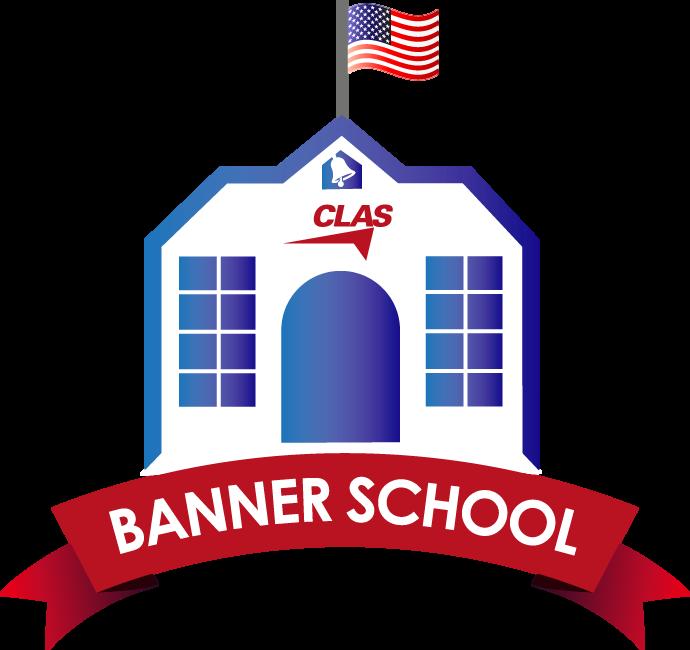
Principal: Mr. Tim Young
Superintendent: Dr. Suzanne Lacey
Charles R. Drew Middle School set up a 7th-grade project-based learning (PBL) project designed to challenge students to create solutions to today’s urgent environmental problem: reducing plastic pollution in waterways. Through this cross-curricular PBL project, students learned about the human impact on local and global ecosystems, the history and use of plastic production, the impact of plastic ingestion on animals, and the chemical impact of plastic on plants. Through research, collaboration, and creativity, students developed practical solutions by completing different project components in each content area. This PBL influenced a group of students to implement, Recycling in Drew (RID). These students researched the impact a recycling program could make, gathered information on area recycling companies, and presented their idea to the principal. Impressed, administrators contacted the researched companies, and recycling bins were delivered. Daily, students were seen pushing large, green recycling bins around the cafeteria during lunch and breaks and emptying small, blue classroom recycling bins. Collection efforts resulted in 954 pounds of paper and plastic in one year. RID students also shared the importance of recycling with the mayor and city council members in Lincoln. The mayor responded by adding ten recycling bins to city buildings. As a result, students witnessed how successful collaboration, research, and a thoroughly planned and written proposal can spark a change not only in their school but also in the community.
Principal: Mrs. Charissa Cole
Superintendent: Dr. Wayne Vickers
Creek View Elementary School began the Jumpstart Summer Enrichment program to combat the summer reading slide among their most at-risk students. All students served in the Warrior Support Team (WST) process and not at benchmark at the end of the year were invited to get a “Jumpstart” on the upcoming year. Fifty students were invited and forty-five participated. Teachers and administrators attended multisensory phonics training and oral reading development during the summer of 2019 to enhance reading instruction and support for all students. Prior to beginning Jumpstart, ten teachers met in the summer to analyze each student’s reading and math portfolios and plan lessons tailored to each child’s specific strengths and weaknesses. Jumpstart enrichment occurred on Tuesday, Wednesday, and Thursday for three weeks prior to the beginning of the 2019 school year. Each session was 2 hours long, providing students with 18 hours of enrichment at no cost to their family. The voluntary program format was designed to be fun and rewarding. Students rotated through stations which provided multisensory Orton-Gillingham phonics instruction, reading strategies with highly engaging topics (Sharks!), and real-life math scenarios. August WST meetings showed Jumpstart students maintained or increased reading levels. Data compiled after the first nine weeks evidenced a sharp increase in benchmarked students.
Principal: Mr. Jesse Hooks
Superintendent: Dr. Suzanne Lacey
At Lincoln Elementary School (LES), RockStar PE was developed to enhance social and physical development for special education students. Four rotations of leadership team students joined special education students for RockStar PE classes. Prior to each rotation of student leaders, an orientation was held by the special and physical education departments where students learned about the variety of challenges of the special education students. As RockStar students progressed through the course, they gained real-world skills to eventually lead to a larger setting of organized sports. Rather than competitive games, the class focused on creative games that succeed only when a team works together. Leaving a team member behind is never an option. Community partnerships and grants increased opportunities for Lincoln students, improved the school culture, and led to a student-led campaign to raise money for a hand-pedaled bike to provide equal opportunity for a disabled student. RockStar PE fueled teachers to provide quality instruction and find creative ways to inspire LES students. The program also challenged students to think critically, collaborate with peers, and hone skills physically and emotionally. The small class size of RockStar PE allowed special education students to be engaged with responsible students without feeling different or singled out.
Principal:
Mr. Michael Bynum
Superintendent:
Dr. Suzanne Lacey
Tiny House-Big Dreams at Lincoln High School was created with the goal of allowing students to learn key employability skills such as time management, construction site management, leadership, and collaboration in a real-world setting. Students were introduced to building and construction through field trips to top-quality tiny home manufacturers in the state. Students took part in an embedded Engineering Design Process by brainstorming, planning, and developing drafts for the construction of a tiny home. Classes held Skype sessions with the architect who drew the house plans, allowing them to participate in the design process, and review blueprints. To develop the skills necessary for construction, students went through NCCER Core Certification and passed safety assessments. Once certified for safety, students engaged in smaller projects designed to acquire skills needed to complete the tiny house. These projects included designing and building shooting houses and storage sheds with completed projects sold and proceeds put towards tiny house materials and supplies. From this, students gained experience in sales and customer relations. Blueprints were amended and passed inspection. A production manual was produced and approved, and a new technical career pathway was developed with a tiny house well underway! The tiny house will be marketed by the Sales and Promotional planning class and sold with all proceeds being used to build a second tiny house.
Principal: Mr. Eric Hines
Tuscaloosa City Schools
Superintendent: Dr. Mike Daria
Kingdom Principles was begun at Eastwood Middle School as a proactive measure to reduce excessive out-of-school suspensions. Eight character principles were introduced and teachers incoporated them into daily instruction. Eastwood implemented an advisory and club system where students discussed personal and academic growth and demonstrated each principle among a supportive, collaborative, family-like team. Motivational speakers reiterated the principles through the lens of successful community liaisons who were once in similar situations. The PTSA exemplified each principle by rewarding students for achievement. Adopt-a-school partners and other community agencies were secured and utilized. Leaders from every job sector in the greater Tuscaloosa area spoke at length with seventh graders about economics, the workforce, and being successful. Sixth graders participated in a stock market challenge that paralleled the concept of economic empowerment. Restorative Justice was implemented as a means of forging unity, integrity, and faith in oneself. Eastwood counselors conducted small group conversations centered around appropriate social interactions. Students who had experienced trauma were afforded an opportunity to meet with a mental health expert on campus to express feelings and learn to cope with personal circumstances. As a result of Kingdom Principles, out-of-school suspensions at Eastwood were reduced by 28%.
Tuscaloosa City Schools
Principal: Dr. LaTanya Williams-Collins Superintendent: Dr. Mike Daria
The Teen and Police Service (TAPS) program at STARS/Success Prep, the alternative school for Tuscaloosa City Schools, was started to promote positive interactions between at-risk youth and law enforcement. The program was started by the police chief and included twenty-four police mentors for thirty at-risk youth. Weekly meetings included a presentation by the chief or guest speaker, then small groups of five students and five mentors met to discuss the presentation. The groups also participated in hands-on classroom activities with the police mentors, community projects, and demonstrations. At the end of a session, each group presented findings from the activities to the whole group. Topics discussed during the sessions included reasons crimes occur, search and seizure, narcotics, minors in possession of drugs/firearms, driver safety, truancy, human trafficking, abuse, conflict management, and gangs. The sessions always ended with police mentors and students eating snacks and getting to know one another, thus building positive relationships among the two groups. As a result of interaction with the police officers during the eleven-week program, post-survey results showed student attitudes towards officers changed for the better. TAPS graduation was held at the alternative school where the chief and police mentors honored students and presented them with completion certificates.
Principal: Mrs. Marsha Johnson Superintendent: Dr. Walter Davie
In partnership with Samford University, Walker Elementary School created The RAMS Way character education program centered around the core values of being respectable, accountable, motivated, and self-controlled. All students and staff were placed on four character education teams and met as grade levels to learn monthly character traits. Team leaders used the Core Essentials curriculum during weekly lessons which focused on the month’s trait. Traits included performance and moral characteristics focused on the head, heart, and hands with the goal for students to see and say the trait’s meaning, know it in their heart, and be the trait through practice with their hands. During team time, students participated in a mentoring program to build relationships by being paired with a peer from another grade. The RAMS Way extended into all areas of Walker as faculty and students created and displayed school-wide behavior expectations on posters throughout the school. Students were selected weekly to serve during student voice meetings and gave input regarding likes, dislikes, and new initiatives for Walker. As a result of The RAMS Way, Walker participated in an inaugural student-initiated recycling drive, adopted the local food pantry, and collected Gatorade for police officers.
Westlawn Middle School
Principal: Dr. Tiffany Davis
Project Family
Tuscaloosa City Schools
Superintendent: Dr. Mike Daria
Westlawn Middle School’s Project Family was developed to engage school and community partners to empower parents, students, and the West Tuscaloosa community to actively support family engagement. Westlawn recruited and partnered with over thirty community partners and ensured students and parents had the guidance and resources needed for future success. During Motivate Me Monday weekly assemblies, stakeholders spoke to students regarding topics from job development to character development. The Money Matters campaign opened a student-operated bank on campus. Interested students interviewed for teller positions, took math entry assessments, and participated in job training sessions with local bankers. PNC Bank hosted financial literacy sessions for students and parents. Promoting Family Unity was held during a home football game. Partners sponsored the first fifty families free game admission and parents and students participated in drawings and games at halftime. This support of Westlawn’s athletes increased family/community support by eliminating financial barriers. No Excuse for Drugs hosted Bradford Health and Tuscaloosa Police to discuss drug abuse prevention and awareness. The Cardiovascular Expo partnered with LifeSouth, UA College of Nursing, and Tuscaloosa Career and Technology Academy Health Sciences Program to offer the Blood Mobile and informational booths on heart and lung health. Project Family’s immense impact has been witnessed in the school’s family atmosphere and significant growth in parent engagement.
Principal: Dr. Cathy Trimble
Superintendent: Mr. John Heard
Blast Off Monday was started to inspire school-wide excellence at Francis Marion School. Each Monday morning, students met in the auditorium following breakfast. The program began with presentations on successful student dress, acceptable and unacceptable behavior in all areas of the school and students’ day. The school’s vision, mission, expectations, and Rise Up slogan were emphasized, and students recited the student creed at each Blast Off Monday assembly. Data was shared from current and previous benchmark assessments which helped students and staff compare academic performance and make decisions to achieve at higher levels. By second semester, Blast Off Monday saw more student involvement and less administrator focus. Students elected class officers and opted to have meetings once a month after Blast Off Monday. Class officers shared ideas, and concerns during “Lunch with the Principal” sessions. Student organizations began presenting programs on various student needs. Students in the school’s two service organizations volunteered to mediate between younger students and teach them conflict resolution skills, thereby contributing to the decline in office referrals and suspensions. Blast Off Monday resulted in students who became more assertive in a positive way and worked tirelessly to change the perception of Francis Marion School.
Principal: Mr. Blaine Hathcock Superintendent: Mr. Kyle Kallhoff
Located in the Black Belt of West Central Alabama in a rural community of less than 7,000 people, Demopolis High School sought to create a simulated work experience for students. Utilizing the Marketing and Broadcasting programs at the school, students collaborated to create Tiger Trending Marketing Media. Marketing students produced presentations and advertising packages to sell to local industry executives and community businesses. Packages included video commercials, radio ads, and social media packages. Broadcasting students presented their capabilities to produce and edit high-quality video, audio, and social media advertising to area businesses. Once services were agreed upon, broadcasting students created products based on requested specifications. Students experienced the technical skills of creating packages, selling products, recording, editing, and producing multimedia. They also practiced soft skills of collaboration, communication, meeting deadlines, and teamwork. In addition to the for-profit media packages, Tiger Trending Marketing Media students collaborated to create a marketing campaign focused on highlighting the great happenings at Demopolis High School and a tourism campaign for the Demopolis Area Chamber of Commerce. This program resulted in an increase in work-related opportunities and corporate partnerships for Demopolis High School.
Pike Road High School
Principal: Mr. David Sikes
Pike Road City Schools
Superintendent: Dr. Chuck Ledbetter
Pike Road High School’s Summit Learning program encompassed project-based learning, self-directed learning, and mentoring to create a program that prioritized students’ needs. Summit Learning utilized a base curriculum but allowed for projects within the curriculum and tailored to student need and interest. Projects made up seventy percent of students’ grades, and students were graded with rubrics on thirty-two cognitive/21st century learning skills. The self-directed learning portion of Summit accounted for thirty percent of grades and occurred while working on content area concepts and skills. Students moved through material outlined by state standards at their own pace, mastering content by year-end. Recognizing that all students do not master material upon first exposure, students could reassess without penalty if they could prove they were ready to take the test again. Lead Learners, teachers, taught power lessons on the material, examined data and created small group lessons, and offered additional workshops for struggling students. Finally, the mentoring component allowed mentors to meet with mentees daily. Within the Summit platform, students and mentors were able to view learning progress from daily, weekly, and yearly perspectives allowing for goal setting and progress monitoring. Students shared that choosing their learning pace and the ability to reassess taught them to recognize strengths and persevere in adversity.
Principal: Mrs. Meredith Bishop
Superintendent: Dr. Ann
Moore
Wilson Elementary School developed STEAM (Science, Technology, Engineering, Arts, and Math) makerspace areas throughout the school to allow for more creative application of standards and hands-on 21st century learning in all subjects. The STEM program at Wilson Elementary School grew rapidly with the help of the Robotics program. Partnering with Brewbaker Technology Magnet High School Robotics Team, Wilson started the first VEX IQ Robotics team in the Montgomery Public School System during 2018-2019. Students learned building, programming, design, and team building skills. Robotics students attended several tournaments and were invited to attend the VEX IQ State Robotics Tournament where they placed in the finals. Wilson Elementary encouraged and mentored two additional elementary schools in the district as they started robotics programs for the 2019-2020 school year. Wilson Robotics members soared in their ability to work as a team and represent their school. The Wilson Robotics Team were model students throughout the school and encouraged other students to pursue STEM activities. Through the incorporation of the STEAM Makerspaces, students have deepened collaboration, critical thinking skills, and achieved higher levels of learning especially in DOK level 3 and 4 in the area of Science.
Principal: Ms. Allison Haygood Superintendent: Dr. Todd Haynie
The Be Who You A.R.R.G.H. program at Corley Elementary School was created by teachers to address the social, emotional, and academic needs of Corley’s little pirates by providing one-on-one mentoring. The program focused on the importance of being Attentive, Responsible, Respectful, Generous, and Honest (A.R.R.G.H.). Corley engaged the community with mentors that included the superintendent, central office staff, community members, parents, and faculty. Mentors began the year reading the book, Be Who You A.R.R.G.H. written and illustrated by a Corley media class. The book explained the importance of exhibiting the program’s traits by sharing the journey of a young pirate. Mentors met with their young pirates multiple times throughout the year. Mental health was addressed in the program through school-based play therapy, small group guidance, and a partnership with Mountain Lakes Behavioral Healthcare. Corley administration and faculty regularly reviewed academic performance and growth of each student and crew members earned points for their crew scoring well on math and reading assessments. This assessment data led academic goal setting discussions for each student and created an individual pathway for success. By opening the school’s doors to parents and community, Corley witnessed a decrease in discipline and improved academic achievement and attendance.
Principal: Dr. John Hood Superintendent: Dr. Shane Barnette Good Hope High School’s Tribe Time provided a strong, student-centered mentoring program where Tribe Leaders (mentors) followed mentees throughout his/her high school career. During Tribe Time, mentors worked with students individually to analyze transcripts. By applying the students’ future expectations, the mentee established college/career paths. Utilizing checklists, students navigated decisions for courses lacked and courses instrumental or required in preparing for post-secondary education and career planning. Each student utilized a Transcript Evaluation and Credit Review handout to evaluate transcripts with earned course credit and courses needed to graduate. This process also looked closely at CTE requirements. Tribe Time Mondays were earmarked as reading days designed to improve comprehension and fluency with each tribe reading from a common selection. The remainder of the week, students were given Tribe Time to complete Tribe lessons focused on character building, work on other assignments or missed tests, or receive extra help. Tribe Time was also used to encourage and strengthen school pride and create unity among tribes. Before an important football game, the student section was given time to collaborate and work on signs, banners, and chants. Through Tribe Time, students made life-long friendships with other students they would not otherwise have met.
Principal: Mrs. Crystal Sparks
Superintendent: Mr. Donald Turner
Reading, Relationships, and Rigor created a successful year of reading for Pleasant Valley Elementary School students. The program provided faculty collaboration with the library media specialist to target all readers. The media specialist worked with teachers to model standards using technology and STEM projects, create a reading center that allowed for flexible scheduling based on data, open access for all students, and weekly library time. The library became the learning hub with a friendly, student-centered environment which included additional seating, centers, and added technology. The library staff conferenced with students about favored authors, genres, and book requests with books ordered on student demand. This created a level of ownership of reading and excitement for students and THEIR library. Third-sixth grade students participated in Battle of the Books, a Jeopardy-style competition among multi-grade teams. Rigor was evidenced as the media specialist worked with teachers to ensure students were reading at levels that produced growth. Relationships guaranteed program success as students conferenced with teachers, parents, and mentors on specific reading goals, objectives, educational, and behavioral expectations. The parents, community, and staff were Pleasant Valley’s cheerleaders. Named, the Raiders, this group sacrificed daily to meet the needs of students and ensured growth for all students.
Principal:
Dr. Andrew Page
Superintendent:
Dr. Susan Patterson
The Leadership Team at West Elementary School developed an attendance incentive program called Attendance HERO – Here, Every Day, Ready and On Time. The Leadership Team selected four attendance periods of four weeks during the second semester to reward students who did not miss a single minute of any day. Students who met the criteria received two rewards. The first reward was a token and a prize from the Treasure Tower in the principal’s office. The Treasure Tower contained eight different small rewards in which students could choose. The second reward designed for students who were Attendance HEROs during a given attendance period received an Attendance HERO t-shirt. Rewarding students during four different periods gave students more opportunities to meet the criteria for the award and allowed students who were out of school sick an additional time period to work for the incentive. Teachers and staff promoted the incentives and the PTA helped promote with parents. West Elementary had great support from stakeholders in promoting the program to students. The Treasure Tower was very popular, and students showed pride as they wore Attendance HERO t-shirts. The program resulted in all grades achieving and an overall 95% attendance rate or higher for 2018-2019.
Principal: Dr. Roderick Sheppard
Superintendent: Dr. Jimmy Shaw
Florence High School’s Lunch With The Keys was proposed by a contract employee, Mr. Pete Key, to modify students’ behavior that resulted in Alternative School. Started at the Alternative School, the program helped students build character, develop conflict resolution skills, identify mentors, improve communication skills, and develop leadership qualities. Students worked to build successful habits prior to the return to the regular school setting. When students transitioned back to Florence High School, they asked to continue the program which led to its beginning at Florence High. Counselors and administration identified students to participate, and Mr. and Mrs. Key worked with students twice a week during lunch. During this non-traditional, lively conversation, students learned to resolve conflict without violence and built healthy relationships. The program equipped Florence High with an intervention to reach struggling students and those with mental health challenges by providing a safe environment free of stigma. High-energy, school-wide assemblies addressing mental health issues were a product of the program with social workers, interns, counselors, life coaches, and motivational speakers as facilitators. Exit survey data showed program participants left the program with increased emotional intelligence, increased attendance, and reduced discipline referrals.
Principal: Ms. Sheneta Smith Superintendent: Dr. Brian Lindsey
Howell Graves Preschool engaged family interaction through STEM and physical education activities during STEM and Fun Day. This student-led event devoted the first half of the day to STEM activities and the second half to physical education. STEM activities are a part of the daily routine at Howell, and ones in which students are fluent. However, many of their families are not. The STEM portion of the day bridged this gap by encouraging students to share with families in the areas of science, technology, engineering, and math. Families and students rotated through classrooms and completed various activities. In science, students shared observational journals of plants and insects and showed families the plants they grew. In technology, students shared how to navigate Kodable on their Chromebooks and encouraged family members to complete a coding activity. During the engineering rotation, students and families reviewed the story of The Three Little Pigs, then worked to build a house out of toothpicks and marshmallows that would withstand a gust of wind. In mathematics, students taught families how to play math games from AMSTI kits. During Fun Day, students rotated among physical education activity stations and discussed key points with their families.
Principal: Mrs. Preeti Nichani
Superintendent: Dr. Mike Daria
Tuscaloosa Magnet Schools-Elementary (TMSE) collaborated with the University of Alabama’s Honors Program (UAHP) to integrate math standards into engaging science experiments through the program, Math in Motion. The program spanned four weeks and targeted the two mathematics areas/strands of Number and Operations and Measurement. During the initial meeting between TMSE teachers and UAHP students, the students shared their college research projects of rocketry, Astrobiotics, building cars, drones, and a mechanical hand used by NASA. TMSE teachers and UAHP students collaborated to create activities related to their research projects and aligned to grade-specific math standards. Third graders built balloon driven cars to explore force and motion, data collection, and measurement. Other third grade classes created a mechanical glove using string and cardboard to mimic a prosthetic hand. These experiences introduced students to engineering as a career path. Fourth graders learned about race car parts as they measured angles of wheel axles, weighed parts, and converted measurements. In fifth grade, students learned about drag/air resistance while racing objects and comparing times. During the final event, third-fifth grade students explored all the research projects. As a result, Math in Motion positively influenced the school’s math achievement and growth scores on the spring Scantron assessment.
Principal: Ms. Kristi Thomson
Superintendent: Dr. Mike Daria
Service Starts Here! at Tuscaloosa Magnet Schools-Middle, an International Baccalaureate World School, required all students to take part in service activities. Sixth graders were required to serve local communities for at least two hours per school year. Seventh graders designed and built gardens, murals, compost bins, and barn quilt squares for Camp McDowell’s Farm School. They participated in school service opportunities through the recycling committee, clean-up team, and tending to the vegetable and butterfly garden. Eighth graders worked individually or in groups to develop a community passion project. They researched ways to offer assistance, developed a project proposal, outlined a six-month completion plan, and created the project. The project handbook outlined the timeline of required activities to complete and attain the highest levels of all four IB criteria. Faculty and staff served as mentors and guided each group or individual through the project process from October to April. All students were divided among five advisory teams that competed to attain the most service hours bi-annually and win the community service shovel. This trophy, made from a common shovel and decorated with the school’s motto, Discover, Create, Serve, was awarded to the winning team at the end of the year pizza party.
Principal: Ms. Tisha Howell
Etowah County Schools
Superintendent: Dr. Alan Cosby
Glencoe Middle School’s goal of producing students who recognized bad decisions, learned from mistakes, and recovered from failure led them to the Why Try Resilience for Youth program. This program enhanced the school’s focus on student emotional and mental health. During 20182019, three teachers were trained to implement and facilitate the program. Trained teachers integrated Why Try Resilience for Youth educational lessons into their courses to provide students with strategies to assist with life’s difficulties. The lessons reinforced decision-making, peer interactions, and complying with school rules/procedures. Glencoe’s eighth grade English teacher focused her first lesson on labels that students place on themselves or feel have been placed on them. She asked a brave volunteer to stand in front of the class and write a label she felt had been placed upon her on a small whiteboard. The student wrote the word, invisible. The class then wrote on a sticky note a word/label they thought of when the brave student’s name came to mind and placed them over the student’s label. Tears streamed down the student’s face as she realized the label she put on herself was not how her classmates saw her. The program provided the social, emotional, and mental support Glencoe students needed for their middle school adventures.
Principal: Mr. Shannon Brown
Interim Superintendent: Mr. Eric Terrell
The World Language program at Liberty Middle School offered students Survey of Mandarin Chinese, Survey of Latin, Survey of German, Survey of French, French I and Spanish I. Liberty Middle hired a full-time French and Latin teacher and worked with community partners to recruit part-time German and Mandarin teachers. The world language teachers built curriculum for the new survey courses by researching Comprehensible Input Based Language Learning and by collaborating with secondary world language teachers on content and vertical skills alignment as well as expectations for learning. At the end of each nine weeks, teachers evaluated the progress of each survey class and made adjustments to curriculum. The didactic approach of the survey classes included activities from interpreting and producing sounds to conducting science experiments and building literacy through novel study and storytelling. World language classrooms at Liberty Middle focused on storyboarding, the enviornment, levelized novel studies, family and consumer science, and cultural celebrations. Cross-curricular experiences such as field trips to local art museums infused the culture in the classes. Liberty’s World Language program ensured student success in the school’s increasingly global community.
Principal: Mrs. Carmen Taylor Buchanan
Interim Superintendent: Mr. Eric Terrell
With the largest population of English Learners in the district and over twenty-six languages spoken on campus, Mill Creek Elementary School saw the need to build a BRIDGE for their EL students. Building Awareness and Understanding with Faculty and Staff, the school procured interpreters and traveled to homes to assist EL families with online registration. Additionally, EL teachers guided faculty to form learning communities centered on the needs of EL students. The platform Ellevations was utilized to access student profiles, interpret data and find ressources and tools for EL lessons. Reflecting on Needs and Data to Determine Instructon, EL teachers built trusting relationships with classroom teachers and collaborated weekly on the growth of each child. Through Ellevations, student growth was tracked by subject and standard. EL teachers met with classroom teachers quarterly and discussed student needs, celebrated successes, and planned for areas of growth. Mill Creek Integrated Culture with an International Night where families shared their culture with food, language, traditions, and celebration. Faculty and staff Developed Relationships by travelling to neighborhoods during the summer of 2018 for Read Around the Block. Students were given snacks and chose a book to read for the summer. To Get Students Ready for Academic Rigor, EL teachers developed a class focused on basic conversation, language acquistion skills, and beginning reading skills. Finally, Mill Creek Embraced the EL Population as faculty attended extracurricular events of students. From a Navrati Festival to a Japanese Spring Festival tea ceremony, students delighted in sharing their culture with their teachers.
New Century Technology High School Biomedical Science
Principal: Ms. Sheila Roby
Huntsville City Schools
Superintendent: Mrs. Christie Finley
Biomedical Science students at New Century Technology High School participated in unique courses such as Biotechnology, Genetics, Bioinformatics, Neuroscience, and Introduction to Pharmacy Technology to prepare them for clinical careers. Partnerships with medical and/or biotechnology companies provided guidance to the program through an advisory board. These partnerships also provided internship opportunities to students. Seniors interned at Huntsville Hospital where they assisted with basic patient care and observed more extensive procedures. HudsonAlpha Institute for Biotechnology and CFD Research Corporation provided students internships focused on scientific research. Biomedical students earned multiple certifications as they progressed through the program. Coordinating with BioAlabama, New Century staff educated industry about the types of skills and certifications students possessed upon completion of the program. This gained the attention of local scientists who volunteered their time and gave lectures. A scientist from GeneCapture taught programming and applied bioinformatics to interested seniors. Students also participated in extracurricular activities related to their studies through clubs such as the Neuroscience Club, Biotechnology Club, Health Occupations Students of America, and Science Olympiad. Funded through the grant program, AL200, students worked with HudsonAlpha on a DNA project to collect plant samples from the Huntsville Botanical Gardens for DNA sequencing.

A+ College Ready offers teacher training and curricula resources for middle and high schools at no cost to program schools.
Tammy Dunn
205-257-5350
tammy@aplusala.org www.aplusala.org/college-ready
ABM Building Solutions
ABM is a leading provider of facility solutions. ABM’s comprehensive capabilities include facilities engineering, energy solutions, HVAC, electrical, provided through stand-alone or integrated solutions.
Don McPherson 770-752-9779 don.mcpherson@abm.com
ACCESS offers rigorous educational courses and teaches via technology to create equity for all Alabama private and public high school students statewide.
Steve Blair 334-242-9594
sblair@alsde.edu
ACT, Inc.
ACT is a nonprofit organization serving students, job seekers, schools and employers with learning resources, assessments, research and credentials designed to help them succeed from elementary school through career.
Lydia Griffin
770-510-3922
lydia.griffin@act.org www.act.org
AdvancED/Measured
Andre Harrison
334-322-2666 aharrison@advanc-ed.org www.advanc-ed.org
National Guard soldiers serve both community and countrywide, earning benefits like tuition assistance, low cost health benefits and enlistment bonuses.
SPE Anthony Dyer 334-306-9687 anthony.w.dyer2.mil@mail.mil www.nationalguard.com/al
Alabama Card Systems, Inc.
We deliver complete identification solutions for education applications specializing in photo ID systems, access control, surveillance, visitor management and ScholarChip.
Pete Drake 205-833-1116 info@alabamacard.com www.alabamacard.com
Alabama Conference on Grading and Assessment for Learning
ACGAL is planned and presented jointly by five state-level organizations. It provides a forum for professional educators across the state to examine and improve grading and assessment practices. Andrew Maxey 205-393-0202 theacgal@gmail.com www.acgal.org
Alabama Music Hall of Fame
Sandra Burroughs 256-381-4417 sburroughs@alamhof.org www.alamhof.org
Alabama State Association for HPERD
Donna Hester 205-388-0304 dhester@asahperd.org www.asahperd.org
American Fidelity Assurance
Providing employee and employer benefit solutions for education employees. John Cole 205-987-0950
john.cole@americanfidelity.com www.americanfidelity.com
Audio Enhancement, Inc.
Quality education demands innovative options to keep students engaged and safe. Audio Enhancement’s classroom solutions empower student success, optimize emergency response times, and maximize teaching. Shannon Hopkins 256-565-3955 Shannon.Hopkins@AudioEnhancement.com www.audioenhancement.com

Balfour
Pearson Alsobrook 334-821-0613 pd.alsobrook@gmail.com
Balfour
Mike Mills 866-402-7464 mike.mills@balfour-rep.com
Balfour
Don Hodges & Bill Hodges 256-249-3373 wdh2@bellsouth.net
Balfour Rickey Phillips 205-733-1060 rickey.phillips@balfour-rep.com
Balfour
Lee McDaniel/W.C. McDaniel 205-981-9868 lee_mcd@bellsouth.net
Bama by Distance
Rise With The Tide! A quality degree from a premier institution is within your reach. Complete courses around your own schedule from any location at affordable rates. Gary Vaden 205-348-0089 uadistance@ua.edu www.BamabyDistance.ua.edu
bby Publications at UWA
Our supplemental teaching materials and professional development improve math knowledge and strengthen teaching strategies using visual models that build foundational and higher-order understanding of mathematics.
Denise Knight 205-652-3801 dknight@uwa.edu www.bbypublications.com
Bill Miller Photographers
We provide full-service photographic solutions for your school. Other services include cap and gown, composites, ID badges, yearbooks and so much more.
Glen Frederick 800-523-5960 www.billmillerphotographers.com

Classworks
Classworks is online K-8 math, reading, language arts, and science instruction, assessment, and productivity tools. Classworks offers rigorous classroom resources and datadriven individualized instruction to increase achievement. David Constantine 251-545-9903
dconstatine@classworks.com www.classworks.com
Crayola
Crayola creatED professional learning gives schools and districts practical, art-infused teaching strategies and resources that deepen creative thinking. James Wells 484-896-8456 jwells@crayola.com www.crayola.com/education
Curriculum Associates
Edmentum
Edmentum empowers educators to move education forward with proven instructional and assessment solutions to improve student outcomes.
Jai Jordan
205-427-6100
jai.jordan@edmentum.com www.edmentum.com
e-hall pass by Eduspire Solutions
The total digital hall pass solution. Free no obligation pilots. Nathan Hammond 717-683-0959 amyhall@eduspiresolutions.org www.eduspiresolutions.org
ESS is a leading educational management firm specializing in full-service, cost-effective management of substitute teachers, paraprofessionals, and support personnel for school districts.
Marcy Everett 865-888-9244 MEverett@ess.com www.ESS.com
The ProEthica® program is an online professional development program designed to help educators balance caring for students with maintaining proper professional distance.
Christine Drew 205-276-4553 ProEthica@ets.org www.ets.org/proethica
Flippen Group
THOUSANDS OF CLASSROOMS. MILLIONS OF STUDENTS. Transforming classrooms and campuses into high-achieving centers of learning where kids really want to attend.
Rob Kirk 979-693-7549 rob.kirk@flippengroup.com
Frontline Education
Frontline Education is the leading provider of school administration software, empowering strategic K-12 leaders with the right tools, data and insights to proactively manage human capital, business operations and special education.
Giffen Recreation Co. Inc.
Commercial playground equipment and architectural site furnishings sales. Jim Griffen 205-982-6233 giffenrec@att.net www.giffenrecreation.com
Glimpse K12
Glimpse’s Education Return on Investment platform evaluates everything you do to impact achievement, optimizing financial resources anround products, programs, and services that drive student outcomes.
Jessica Williams 251-769-5122
jessica@glimpsek12.com www.glimpsek12.com
Herff Jones, LLC
Herff Jones is a proud provider of yearbooks, class rings, caps and gowns, diplomas and graduation announcements. Trey Morgan 800-255-6287 tlmorgan@herffjones.com www.herffjones.com
Horace Mann Companies
Financial institutions and insurance products. Jon Green 217-789-2500 jon.green@horacemann.com www.horacemann.com
Houghton Mifflin Harcourt
Houghton Mifflin Harcourt (HMH) is a global learning company committed to delivering integrated solutions that engage learners, empower educators and improve student outcomes. Tabitha Reever 256-810-7813 tabitha.reever@hmhco.com www.hmhco.com
Imagine Learning


Curriculum Associates research-based products including i-Ready®, Ready®, BRIGANCE® provide teachers & administrators with flexible resources that deliver meaningful assessments and data-driven, differentiated instruction for children.
Kelly-Ann Parson 800-225-0248 kparson@cainc.com www.curriculumassociates.com
Edgenuity
Edgenuity provides online and blended learning solutions for grades K-12 that propel student success, empower teachers, and enable schools to meet their academic goals. Steve Santora 404-808-7782
steve.santora@edgenuity.com www.edgenuity.com
Mark Fesperman 251-753-9711
mfresperman@frontlineed.com www.FrontlineEducation.com
Fuel Education
Fuel Education partners with school districts to fuel personalized learning through innovative Pre-K-12th grade online learning solutions.
Randy Starner 205-222-0348 rstarner@fueleducation.com www.fueleducation.com
Fun and Function
We create therapeutic tools, educational programs, and multi-sensory environments to support behavioral and developmental goals, address learning and sensory challenges, and social-emotional needs.
Danielle Lake 800-231-6329 memanuel@funandfunction.com www.funandfunction.com
Imagine Learning’s mission is to teach language, literacy, and mathematics to the children of the world. This is accomplished by utilizing its high-quality and award-winning software products. Imagine Language & Literacy, Imagine Math, Imagine Española, Christy Sanders 866-377-5071 christy.sanders@imaginelearning.com www.imaginelearning.com
Interior Elements

Contract furniture dealer servicing the K-12 market. Dan Chappell 334-332-9708
dc@in-elements.com www.in-elements.com
Istation
Interior Elements
Blended learning and intervention for reading, math and Spanish literacy. Anne Peacock 601-319-5162 apeacock@istation.com www.istation.com

Joe McEachern Photography School Photography. Chris Westcott cwestcott1@gmail.com
K12 Bloom
BLOOM, the only fully iNOW integrated discipline solution, makes it easy for teachers to record discipline incidents and easy for administrators to respond. Automated, accurate, and transparent discipline tracking.
Brandon Payne 256-690-5145 brandon@theleanleap.com www.theleanleap.com
Karen Maury Jewelry
We engrave jewelry onsite. Sterling silver, crystal, wood, shell and resin.
Karen Maury 205-790-8349 kayrena16@gmail.com
Lathan Associates Architects
Lathan Associates Architects is a full-service design firm with 30 years experience working with the education market. Our goal is to partner with you to meet your needs; whether a new facility, renovation or everyday maintenance. BEING GREAT IS WHAT WE DO!
Carol Coleman 205-988-9112 ccoleman@lathanassociates.com www.lathanassociatesarchitects.com
Learning A-Z is a literacy-focused PreK-6 education technology provider. Our products blend teacher-led instruction with technology-enabled resources to make teaching more effective and efficient.
Ann Crawley 866-889-3729 ann.crawley@learninga-z.com www.learninga-z.com
Lexia Learning
Lexia® Learning is committed to helping all students become proficient readers and confident learners. Lexia empowers literacy educators with research-driven adaptive assessment and personalized instruction.
Julie Williams 800-435-3942
jwilliams@lexialearning.com www.lexialearning.com
Lifetouch School Portraits and Yearbooks
Partnering with Alabama schools to provide school day portraits, yearbooks, senior portraits, sports portraits, and special event portraits.
Todd Diefenderfer 334-351-2360 tdiefenderfer@lifetouch.com www.lifetouch.com
Lightspeed Technologies
From whole group instruction to small group collaboration, Lightspeed provides access to learning like never before.
Steve Bishop 800-732-8999
steve.bishop@lightspeed-tek.com www.lightspeed-tek.com
Locker Pro
Locker Pro is one of the largest lock and locker distributors in the country. We represent multiple lock and locker lines, offering summer maintenance to get lockers ready for the upcoming year.
Tyler Wiechman 205-663-3211
tyler@lockerpro.com www.lockerpro.com
MasteryPrep
MasteryPrep helps low-income and first-generation students achieve a college-ready score on the ACT & SAT. Our programs and innovative trainings, help teachers with tools and strategies to prepare students for college.
Kaci Patterson Letts
855-922-8773 info@masteryprep.com www.masteryprep.com
National TeleTherapy Resources, LLC
NTR offers schools an innovative and research-based way to provide speech and occupational therapy while reducing cost, reducing caseload size, and overcoming therapist shortages.
Sandy Broderway 844-687-5465 sandy@ntrlink.com www.ntrlink.com
Neighborhood Bridges
We Advocate for children & families by Engaging our community in Building & Nuturing…A Gateway for Kindness.
Donna Bishop 205-516-3717 hooverhelps@gmail.com www.neighborhoodbridges.org
Playworld Preferred, Inc.
Playworld Preferred is a distributor of premier playground equipment, safety surfacing and installation services.
Jeff Wingo 704-584-1031 jeff@playworldpreferred.com www.playworld.com
PNP
Providing playground and amenities to create better outdoor learning.
Jessica Hoagland 334-296-7503
jessica@petandplayground.com www.petandplayground.com
PowerSchool Group, LLC
PowerSchool helps schools and districts efficiently manage instruction, learning, grading, attendance, assessment, analytics, state reporting, special education, student registration, talent, finance and HR.
Jenny Scott 251-656-1397 jenny.scott@powerschool.com www.powerschool.com
PowerUpEDU
PowerUpEDU is an award-winning education solutions provider for Alabama classrooms, creating learning environments that engage students, empower teachers and bridge the gap between teaching and technology.
Laura Russell 205-203-8800 laura@powerupedu.com www.powerupedu.com
Presentation Solutions, Inc.
The ColorPro poster maker allows you to create your own fullcolor posters - instantly! Also, create your own custom award plaques, cutouts, decals and more!
Joe Powell
800-280-7809
joecool@presentationsolutions.com www.presentationsolutions.com
PS Safety Connection, LLC
Safety Solutions for Your School!
• Car Rider Pick Up Tags (Personalized & Unique)
• Back Pack Tags
• Hall Passes
• Staff Safety (Lanyards & More)
Donna Jemmott 844-608-1860 sales@pssafetyconnection.com www.pssafetyconnection.com
Through smart, data-driven educational technology solutions that amplify teachers’ effectiveness, Renaissance helps teachers teach better, students learn better, and school administrators lead better.
Karen Winn 800-338-4204 karen.winn@renaissance.com www.renaissance.com
The graduate program at Samford has a long history of partnerships with school systems. We believe effective leadership is essential and best demonstrated through collaboration.
Marcie Harchuck 205-726-4337 mjparson@samford.edu www.samford.edu/education
SchoolCast is a flexible notification system that lets your key stakeholders decide how they want you to communicate with them in an emergency or non-emergency. 888-988-5884 support@highgroundsolutions.com www.highgroundsolutons.com

School Security - America’s favorite, fastest and easiest way to check IN/OUT students, faculty and visitors in your school. OffenderCHECK scans each visitor’s driver’s license with instant sex offender search. PowerSchool partner with data integration.
Barry Peterson 813-962-7264 info@schoolcheckin.com www.schoolcheckin.com
School Datebooks and STEM Education Works, both powered by SDI Innovations, provide schools the best assignment planners, STEM robotics and, STEM curriculum on the market.
Brad Metzger 800-705-7526
brad@schooldatebooks.com www.sdiinnovations.com
Simbli by eBOARDsolutions
The first and only comprehensive board management software solution for effective board governance. Charlie Rigby 770-822-3626
crigby@eboardsolutions.com
Suzanne Freeman sfreeman@eboardsolutions.com www.eboardsolutions.com
Southeastern Fundraising Fundraising
Ralph Cahill 601-729-8181 sosoralph@bayspringstel.net
Teachers N Tools, Inc.
Interactive panels, podiums and service contracts for classroom management. Cynthia Lowery 800-826-4614 cynthia@teachersntools.com
Terrell Enterprises, Inc.
Your school’s source for purchasing furniture, supplies, fixtures, flooring and equipment. We will help create a safe, modern, engaging and productive learning environment for the students. Al Brannon 334-382-7415 al@terrellenterprises.com www.terrellenterprises.com
The Elson Company, LLC
We provide bed sheet and bath towel fundraisers. David Malone 256-381-8352 info@theelsoncompany.com www.TheElsonCompany.com
The University of Alabama’s College of Education offers graduate programs and services. Carlton McHargh 205-348-0549 mchargh@ua.edu www.education.ua.edu
Peer Helpers is an evidence-based Pre-K through 12th grade prevention and support program equipping students to support a wide range of emotional, societal, and behavioral challenges. Allison Moore 844-705-1981 allison@thrivewayconsulting.com www.ThriveWay.com
Transaction Point, LLC
Campus branding, staff appreciation gifts, cash counting technology. Please stop at our booth and see these products and our new line of fundraising products. Britt Matthiessen 800-396-7301 jbm@transactionpoint.net www.transactionpoint.net
UA Early College offers high school students the opportunity to earn college credit, online or on the UA campus, with a variety of courses offered.
Leslee Griggers 205-348-7083 earlycollege@ua.edu www.uaearlycollege.ua.edu
Schools PLP- complete online course catalog with over 550 courses and subject areas including CTAE. Dyslexic Solutions - with Mindplay Reading.
Rusty Jones 770-789-1940 rjones@umaed.com www.umaed.com
University of West Alabama
We’ve been training educators for nearly two centuries. Come learn about innovations in education and how a degree from UWA can help you do something that matters.
Jessica Hughes 205-533-0131 jhughes@uwa.edu www.online.uwa.edu
Premier provider of supplemental retirement solutions, including 403(b) and 457(b) plans, needed for financial and retirement security.
Mark Briones 205-967-8974
mark.briones@valic.com www.valic.com
Veal Convention Service, Inc.
Veal Convention Services, Inc. is a general service contractor for conventions, expositions, trade shows, exhibitions, meetings and corporate events.
David Veal 205-844-8325
david@vealco.com www.vealco.com
Virco



Virco is an American-owned classroom, library, cafeteria and office furniture manufacturer that has been serving public schools for over 65 years.
John Havicus 205-721-0514
johnhavicus@virco.com www.virco.com
Vocabulary.com
Used in over 40,000 schools, Vocabulary.com is a platform for systematic vocabulary improvement that adapts to individual student needs and aligns with any curriculum.
David Mickelsen 256-566-5545
dmickelsen@vocabulary.com www.vocabulary.com/educator-edition/
World’s Finest Chocolate
Chocolate fundraising company. 832-978-6728
lcordero@wfchocolate.com www.worldsfinestchocolate.com
Zaner-Bloser
Darlean Macon
205-356-0142
darlean.macon@zaner-bloser.com www.zaner-bloser.com


